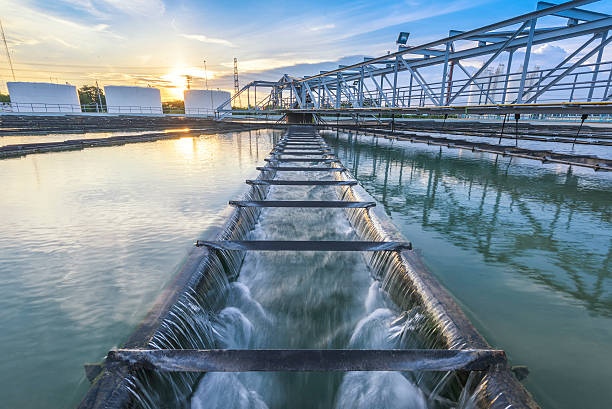We Care Abouth Your Prosperity
SPECIAL CHEMICALS PRODUCTION
Special Chemicals
As Paragroup, a company that provides special chemical products and solutions, we offer custom solutions for the mining, oil and gas, refinery, and wastewater industries.
For the mining sector, we provide chemicals used in mining fields as well as solutions for mineral processing and waste management processes. Our products such as flocculants, flotation reagents, solvents, and other chemical products help our customers increase their productivity in mining processes.
In the oil and gas industry, we offer various chemical products used in different stages. Our solutions include solvents, acids, corrosion inhibitors, emulsion breakers, and other chemical products used in oil drilling and production stages.
For the refinery industry, we provide chemical products used in refinery production, such as catalysts, separators, hydrogenation agents, and other chemical products. We also offer custom solutions for refinery waste management.
Lastly, we specialize in wastewater solutions. We provide solutions for the treatment of wastewater from various industries. Our solutions include flocculation agents, biological treatment chemicals, and other special chemical products.
At Paragroup, we strive to offer custom solutions to our customers and help them increase their efficiency in their respective industries.

Special Chemicals Production
Services We Offer
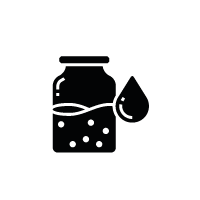
ADDITIVES FOR DIESEL FUELS
PARAGROUP DD 2106
Depressant “PARAGROUP DD 2106” is a specially selected combination of copolymers in a hydrocarbon solvent and is designed to effectively reduce the filterability and pour points of diesel and marine fuels. Depressant additive “PARAGROUP 2106” contains in its composition a dispersing additive that significantly improves the sedimentation stability of diesel fuels during cold storage. Depressant additive “PARAGROUP DD 2106” is produced in accordance with the current technical specifications TU 2458-041-17423242-2010.
Application
It is necessary to strictly follow the recommendations for the use of “PARAGROUP DD 2106”: heating the additive, preparing the working solution of the additive and preheating the working solution of the additive and the fuel being processed.
Dosage
The effectiveness of the depressant additive “PARAGROUP DD 2106” depends on the composition and content of paraffins in the treated fuel. The dosage of the additive can range from 50 g/ton to 1000 g/ton. It is recommended to supply the additive with a dosing pump.
| physical and chemical indicators | – |
| Appearance | Clear liquid from colorless to dark yellow |
| Density at 20С, g/cm3 | 0.895 – 0.925 |
| Kinematic viscosity at 20С, mm2/s | 78.5-81.5 |
| Pour point, С, not higher | Minus 10 |
PARAGROUP DD 2108
Depressant additive “PARAGROUP DD 2108” is a specially selected composition of copolymers in a hydrocarbon solvent. Additive DD 2108 is designed to effectively reduce the filterability temperature, pour point and cloud point of diesel and heating oil. Depressant additive “PARAGROUP DD 2108” is produced in accordance with TU 2458-042-17423242-2010.
| physical and chemical indicators | – |
| Appearance | Clear, colorless to dark yellow liquid |
| Density at 20С, g/cm3 | 0.886 – 0.927 |
| Kinematic viscosity at 20С, mm2/s | 68.5-72.5 |
| Pour point, С, not higher | Minus 12 |
PARAGROUP DD 2121
Additive depressant dispersant PARAGROUP DD 2121 is a specially selected composition of copolymers in a hydrocarbon solvent. Additive PARAGROUP DD 2121 is designed to effectively reduce the filterability temperature and the pour point of diesel and heating oil. Additive PARAGROUP DD 2121 contains a dispersing additive that significantly improves the sedimentation stability of diesel fuels during storage. Additive PARAGROUP DD 2121 is produced in accordance with TU 2458-044-17423242-2010, amend. 1.
| physical and chemical indicators | – |
| Appearance | light yellow to dark brown liquid |
| Density at 20С, g/cm3 | 0.850 – 0.930 |
| Kinematic viscosity at 20С, mm2/s, no more | one hundred |
| Pour point, С, not higher | Minus 5 |
PARAGROUP DD2177
Depressant-dispersant additive “PARAGROUP DD 2177” is a specially selected composition of copolymers of ethylene and vinyl acetate in a hydrocarbon solvent. Additive “PARAGROUP DD 2177” is produced in accordance with TU 0257-016-26913347-2015, amend. 1.
| physical and chemical indicators | – |
| Appearance | light yellow to dark brown liquid |
| Density at 20С, g/cm3 | 0.850 – 0.930 |
| Pour point, С, not higher | Minus 5 |
PARAGROUP DS1406
Cetane-boosting additive “PARAGROUP DS 1406” is designed to improve the flammability of diesel fuel, measured by cetane number. The addition of an additive allows you to increase the cetane number by several units.
Cetane booster “PARAGROUP DS 1406” is a highly effective ignition promoter for all types of diesel fuels, increasing the uniformity and completeness of diesel fuel combustion. The cetane booster “PARAGROUP DS 1406” is a composition of esters of inorganic acids. The cetane booster “PARAGROUP DS 1406” is produced in accordance with TU 0257-056-17423242-2011.
Application
The cetane-enhancing additive “PARAGROUP DS 1406” is added to diesel fuel during pumping into storage tanks or during storage with the organization of circulating mixing.
Dosage
The cetane booster “PARAGROUP DS 1406” is completely soluble in diesel fuel and organic solvents.
| physical and chemical indicators | – |
| Appearance, color | Clear, colorless to yellow liquid |
| Density at 20С, g/cm3 | 0.930 – 1.020 |
| Pour point, С, not higher | minus 40 |
| Kinematic viscosity at 20оС, mm2/s, no more | 3 |
PARAGROUP DS7739
Antiwear additive PARAGROUP “DS 7739” is designed to improve the lubricity of diesel fuels. Antiwear additive PARAGROUP “DS 7739” is a specially selected composition of fatty acid derivatives in a hydrocarbon solvent. Antiwear additive PARAGROUP “DS 7739” is produced in accordance with TU 0257-043-17423242-2010.
Application
Anti-wear additive PARAGROUP “DS 7739” is added to diesel fuel during its pumping or storage.
Dosage
The dosage of the antiwear additive PARAGROUP “DS 7739” is determined for each diesel fuel until the required wear spot is reached and ranges from 50-150 ppm depending on the sulfur content.
| physical and chemical indicators | – |
| Appearance | Clear liquid from light yellow to dark brown |
| Density at 20С, g/cm3 | 0.890 – 0.930 |
| Pour point, С, not higher | minus 10 |
| Kinematic viscosity at 20оС, mm2/s, no more | 35 |
PARAGROUP DA7035
Antistatic additive PARAGROUP “DA 7035” is designed to increase the electrical conductivity of diesel fuels. Antistatic additive PARAGROUP “DA 7035” is a specially selected composition of derivatives of alkylbenzenesulfonic acids in a mixture of hydrocarbons. Antistatic additive PARAGROUP “DA 7035” is produced in accordance with the current technical specifications TU 0257-029-26913347-2016.
Application
The antistatic additive PARAGROUP “DA 7035” is added to the base diesel fuel, or to the fuel containing other additives. Fully compatible with other PARAGROUP diesel fuel additives.
Dosage
Dosage of the antistatic additive PARAGROUP “DA 7035” with the target indicator of the electrical conductivity of commercial diesel fuel. As a rule, a dosage of 1-2 ppm is sufficient.
| physical and chemical indicators | – |
| Appearance | light yellow to brown liquid |
| Density at 20С, g/cm3 | 0.810 – 0.950 |
| Pour point, С, not higher | minus 40 |
| Kinematic viscosity at 20оС, mm2/s, not less than | 3 |

ADHESIVES
PARAGROUP BN1401
Adhesive “PARAGROUP BN 1401” is intended for use in the production of hot and cold asphalt mixes. PARAGROUP BN 1401 adhesive is a composition of the condensation product of fatty amines and their derivatives.
Adhesive ” PARAGROUP BN 1401 ” is produced in accordance with TU
2416-036-17423242-2010.
Application
Adhesive “PARAGROUP BN 1401” is intended for introduction into liquid and viscous petroleum bitumen to improve adhesive properties, as well as a bitumen stabilizer in the production of hot ABS. Due to the ability to bind oxygen dissolved in bitumen, the adhesive slows down the process of thermal-oxidative degradation of the binder in the production of hot ABS.
Dosage
The introduction of the adhesive into the bitumen in an amount of 0.3% to 0.5% by weight of the bitumen does not adversely affect the basic physical and mechanical properties of the modified bitumen. At the same time, the modified bitumen becomes more plastic, its aging after heating decreases, the adhesion of bitumen to the surface of mineral materials of acid and basic types increases significantly.
Due to the liquid form, the adhesive is easy to use, as well as a high uniformity of the bitumen with the additive.
| physical and chemical indicators | – |
| Appearance | homogeneous liquid from light yellow to dark brown. Opalescence allowed |
| Density at 20°С, g/cm3 | 0.840 – 1.170 |
| Pour point, °С, not higher | plus 10 |
| pH value of 1% aqueous solution, units, not less than | 7.8 |

ALKALINISATION CHEMICALS
PARAGROUP 0918
Alkalinizing reagent “PARAGROUP 0918″ intended for alkalization of demineralized oil at its primary processing units. The alkalizing agent HERCULES 0918 is a composition of amine derivatives in a water-alcohol solution. The alkalizing reagent ” PARAGROUP 0918″ is produced in accordance with TU 2458-053-17423242-2011 with amendment 1.
Application
The alkalizing agent ” PARAGROUP 0918″ is dosed together with an aqueous solution of NaOH into desalted oil in front of the mixing device constantly using a dosing pump.
Dosage
Dosing can be done directly from product drums or from work containers. The consumption of the reagent depends on the quality of the oil and the requirements for the level of chemical and technological protection of the equipment and can vary between 3 – 15.
| physical and chemical indicators | – |
| Appearance | Homogeneous liquid from colorless to light brown |
| Density at 20С, g/cm3 within | 0.850 – 0.950 |
| Neutralizing capacity, l/g-eq HCl, not higher | 0.2 |
| Pour point, С, not higher | minus 35 |
PARAGROUP 0980
Alkalinizing reagent ” PARAGROUP 0980″ is intended for alkalization of demineralized oil at its primary processing units and at oil refineries. The alkalizing reagent ” PARAGROUP 0980″ is a mixture of amine derivatives in a water-alcohol solution. The alkalizing reagent ” PARAGROUP 0980″ is produced in accordance with TU 2458-054-17423242-2011.
Application
The alkalizing agent ” PARAGROUP
0980″ is dosed together with an aqueous solution of NaOH into desalted oil in front of the mixing device constantly using a dosing pump.
Dosage
Dosing can be done directly from product drums or from work containers. The consumption of the reagent depends on the quality of the oil and the requirements for the level of chemical and technological protection of the equipment and can vary between 3 – 15.
| physical and chemical indicators | – |
| Appearance | Homogeneous liquid from colorless to light brown |
| Density at 20С, g/cm3 | 0.930 – 0.950 |
| Pour point, С, not higher | minus 25 |

ANTI-TURBULENT ADDITIVES
PARAGROUP PTN 3170
PARAGROUP PTN 3170 anti-turbulent oil additive is a specially selected combination of high molecular weight polyalphaolefin copolymers in the form of a suspension in a combined carrier (of organic and / or vegetable origin) and is designed to increase the volume of pumped oil by effectively reducing hydraulic resistance and pressure losses in the pipeline at pumping. Anti-turbulent additive “PARAGROUP PTN 3170” is produced in two grades A and B in accordance with the current technical specifications TU 2458-011-17423242-2009 with amend. 1.
Application
It is necessary to strictly follow the company’s recommendations for the use of the “PARAGROUP PTN 3170” additive. The additive is fed continuously into the pressure pipeline, usually after the pump.
Dosage
Dosage of additive “PARAGROUP PTN 3170” can vary from 5 g/ton to 50 g/ton. It is necessary to use special dosing systems for the introduction of additives. The company can supply the necessary dosing systems for the industrial supply of the additive.
| physical and chemical indicators | brand A | brand B |
| Appearance | light gray to dark yellow suspension | light gray to dark yellow suspension |
| Density at 20С, g/cm3 | 0.840 – 1.200 | 0.840 – 1.200 |
| Pour point, С, not higher | minus 10 | minus 40 |
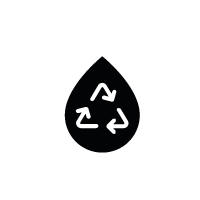
BIODISPERSANTS
PaARAGROUP B 9275
Dispersant “B 9275” is a liquid phase surfactant designed to control biological deposits in aquatic environments and to control the growth of algae and bacteria in cooling water circulation systems.
The dispersant prevents the formation of biofilms on the surface of equipment and other elements of water circulation systems and is used at enterprises that have cooling water circulation systems on cooling towers, in water injection systems for oil and gas production. Belongs to the type of non-oxidizing inhibitors.
Dispersant “B 9275” is produced in two grades A and B, depending on the composition and technical characteristics. Dispersant “B 9275” grade B has a selective oxidative bactericidal effect and is used to suppress both anaerobic and aerobic forms of bacteria.
Dispersant “B 9275” is produced in accordance with the current technical specifications TU 2417-009-17423242-2004 with amend. 1, 2, 3.
Application
Dispersant “B 9275” can be dosed into the water circulation system and other water circuits either continuously using a dosing pump or periodically. Dosing can be done directly from product drums or from working plastic containers.
More stable results can be achieved by alternating the use of B 9275 dispersant with B 9007 biodeposition inhibitor and/or B 9280 dispersant.
Dosage
The dosage of Dispersant “B 9275” depends on the degree of biological deposits, as well as on the degree of infection of the system with microorganisms. Periodic dosages of 10 to 20 g/t based on system volume over a period of 1-2 weeks are typical. In heavily contaminated systems, where reagent treatment has not been carried out for a long time, more frequent treatments with dosages up to 50 g/t are recommended. The effectiveness of dosages increases in the case of the combined use of the reagent “B 9275” with biodeposition inhibitors.
| physical and chemical indicators | Grade A | Grade B |
| Appearance | colorless to dark yellow liquid | colorless to light yellow liquid |
| Density at 20°С, g/cm3 | 1.050 – 1.230 | 1.210 – 1.340 |
| Pour point, °С, not higher | minus 10 | minus 10 |
PARAGROUP B 9276
Dispersant “B 9276” is a water-soluble mixture of organic and inorganic bromides, aldehydes and glycols.
Dispersant “B 9276” is designed to combat biological deposits in aquatic environments and to control the growth of algae and bacteria in cooling water circulation systems, as well as in water and oil treatment systems in oil fields; prevents the formation of biofilms on the surface of equipment and other elements of water circulation and collection.
Dispersant “B 9276” grade B has a selective oxidative bactericidal effect and is used to suppress both anaerobic and aerobic forms of bacteria.
Dispersant “B 9276” is produced in two grades A and B, depending on the composition and technical characteristics in accordance with the current technical specifications TU 2417-062-17423242-2012.
Application
Dispersant “B 9276” can be dosed into the water circulation system and other water circuits either continuously using a dosing pump or periodically. Dosing can be done directly from product drums or from working plastic containers.
Dosage
The dosage of the Dispersant “B 9276” depends on the degree of biological deposits, as well as on the degree of infection of the system with microorganisms. Periodic dosages of 10 to 20 g/t based on system volume over a period of 1-2 weeks are typical. In heavily contaminated systems, where reagent treatment has not been carried out for a long time, more frequent treatments with dosages up to 50 g/t are recommended. The effectiveness of dosages increases in the case of the combined use of the reagent “B 9276” with biodeposition inhibitors.
| physical and chemical indicators | Grade B | Grade A |
| Appearance | colorless to light yellow liquid | colorless to light yellow liquid |
| Density at 20°С, g/cm3 | 1.050 – 1.250 | 1.050 – 1.200 |
| Pour point, °С, not higher | minus 20 | minus 40 |
PARAGROUP B 9280
Dispersant “B 9280” is a liquid-phase surfactant designed to control biological deposits in aquatic environments and to control the growth of algae and fungi in cooling water circulation systems. The dispersant prevents the formation of biofilms in circulating water systems and is used in plants with cooling water circulation systems in cooling towers. Sometimes it works like a non-oxidizing inhibitor.
Dispersant “B 9280” is produced in accordance with the current technical specifications TU 2493-008-17423242-2004 with amend. 1.
Application
Dispersant “B 9280” can be dosed into the water circulation system and other water circuits either continuously using a dosing pump or periodically. Dosing can be done directly from product drums or from working plastic containers.
The action of the reagent begins to manifest itself, as a rule, after 4-6 hours, and in some cases intensifies over the next 1-2 days. A good bactericidal effect can be obtained when “B 9280” is used together with the biodeposition inhibitor “B 9007” and the dispersant “B 9275
Dosage
The dosage of Dispersant “B 9280” depends on the degree of biological deposits, as well as on the degree of infection of the system with microorganisms. Periodic dosages of 10 to 50 g/t based on system volume over a period of 1-2 weeks are typical. In heavily contaminated systems, where reagent treatment has not been carried out for a long time, more frequent treatments with dosages up to 100 g/t are recommended. The disappearance of algae is observed visually within 3-6 weeks. The removal of the biofilm and the suppression of the growth of microorganisms is recorded by analytical methods.
| physical and chemical indicators | Grade A |
| Appearance | homogeneous, easy-flowing liquid from colorless to light yellow |
| Density at 20°С, g/cm3 | 0.960 – 1.000 |
| Pour point, С, not higher | minus 1 |
PARAGROUP B 9281
Dispersant “B 9281” is an aqueous solution of substituted alkyl phosphine oxide. The dispersant is designed to control biofouling and biodeposition in aquatic environments and to control the growth of algae and fungi in cooling water circulation systems.
The dispersant prevents the formation of biofilms in circulating water systems and is used in plants with cooling water circulation systems in cooling towers. Dispersant “B 9281” is produced in two grades A and B in accordance with the current technical specifications TU 2482-064-17423242-2012.
Application
Dispersant “B 9281” can be dosed into the water circulation system and other water circuits either continuously using a dosing pump or periodically. Dosing can be done directly from product drums or from working plastic containers.
The action of the reagent begins to manifest itself, as a rule, after 4-6 hours, and in some cases intensifies over the next 1-2 days. A good bactericidal effect can be obtained when “B 9281” is used together with the biodeposition inhibitor “B 9007” and the dispersant “B 9275”.
Dosage
The dosage of Dispersant “B 9281” depends on the degree of biological deposits, as well as on the degree of infection of the system with microorganisms. Periodic dosages of 10 to 50 g/t based on system volume over a period of 1-2 weeks are typical. In heavily contaminated systems, where reagent treatment has not been carried out for a long time, more frequent treatments with dosages up to 100 g/t are recommended. The disappearance of algae is observed visually within 3-6 weeks. The removal of the biofilm and the suppression of the growth of microorganisms is recorded by analytical methods.
| physical and chemical indicators | Grade A | Grade B |
| Appearance | colorless to light yellow liquid | colorless to light yellow liquid |
| Density at 20°С, g/cm3 | 0.960 – 1.150 | 0.950 – 1.200 |
| Pour point, °С, not higher | minus 1 | minus 40 |
PARAGROUP B 9285
Dispersant “B 9285” is designed to disperse and prevent the accumulation of oil products in cooling water circulation systems. The use of dispersant B 9285 is provided for at oil refining, oil producing and other enterprises. Dispersant B 9285 is an aqueous solution of glycols and amino alcohols. Dispersant “B 9285” is produced in accordance with the current technical specifications TU 2458-012-26913347-2014.
| physical and chemical indicators | – |
| Appearance | Homogeneous liquid from colorless to light yellow |
| Density at 20°С, g/cm 3 | 0.090 – 1.150 |
| Pour point, °С, not higher | 0 (zero) |

BIOLOGY CONTROL
PARAGROUP B 9007
B9007 bioscale inhibitor is a mixture of alkylamine acetates and is designed to control the growth of microorganisms in cooling water circulation systems at enterprises, in hot water circuits, and to combat bacteria in oil fields. Highly effective against sulfate-reducing, acid-forming, sludge-forming, and other forms of bacteria, as well as molds and yeasts.
Inhibitor “B 9007” is produced in three grades A, B and C in accordance with the current technical specifications TU 2482-015-17423242-2008 with
Application
Bioscale inhibitor “B 9007” can be dosed into the water circulation system and other water circuits either continuously using a dosing pump or periodically. Dosing can be done directly from product drums or from working plastic containers. If necessary, for ease of dosing, the reagent can be pre-diluted with water.
Dosage
The dosage of biodeposit inhibitor “B 9007” depends on the degree of biocontamination of the system. In initial water cycle treatments, shock doses of 10 to 40 g/t, based on the volume of the system, are generally required. Upon reaching the specified indicators, the reagent is dosed in smaller quantities, for example, about 5-10 g/t based on the volume of the system. The reagent is served periodically 1 time in 7-10 days, depending on the infection of the system with microorganisms and on the season.
|
physical and chemical indicators |
Grade A |
Grade B |
Grade C |
|
Appearance |
light yellow to brown liquid |
light yellow to brown liquid |
paraffin-like mass of light yellow color |
|
Density at 20°С, g/cm3 |
1,000 – 1,100 |
0.870 – 0.970 |
– |
|
Pour point, °С, not higher |
minus 19 |
minus 40 |
– |
|
Melting point, C, not lower |
– |
– |
35 |
PARAGROUP B 9007
The biodeposition inhibitor “B 9008” is a mixture of alkylamine acetates in an aqueous solution. The inhibitor is designed to suppress harmful microorganisms in chilled water circulation systems in enterprises, in hot water circuits, as well as in oilfield water collection systems. Highly effective against sulfate-reducing, acid-forming, sludge-forming, and other forms of bacteria, including aerobic forms, as well as molds and yeasts.
Inhibitor “B 9008” is produced in two grades A, B in accordance with the current technical specifications TU 2482-065-17423242-2012.
Application
Bioscale Inhibitor “B 9008” can be dosed into the water circulation system and other water circuits either continuously using a dosing pump or periodically. Dosing can be done directly from product drums or from working plastic containers. If necessary, for ease of dosing, the reagent can be pre-diluted with water.
Dosage
The dosage of biodeposit inhibitor “B 9008” depends on the degree of biocontamination of the system. In initial water cycle treatments, shock doses of 10 to 40 g/t, based on the volume of the system, are generally required. Upon reaching the specified indicators, the reagent is dosed in smaller quantities, for example, about 5-10 g/t based on the volume of the system. The reagent is served periodically 1 time in 7-10 days, depending on the infection of the system with microorganisms and on the season.
|
physical and chemical indicators |
Grade A |
Grade B |
|
Appearance |
light yellow to brown liquid |
light yellow to brown liquid |
|
Density at 20°С, g/cm3 |
0.95 – 1.12 |
0.90 – 1.15 |
|
Pour point, С, not higher |
minus 25 |
minus 35 |
PARAGROUP B 9015
B 9015 Bioscale Inhibitor is a mixture of alkylamine acetates and is designed to control the growth of microorganisms in cooling water circulation systems at enterprises, in hot water circuits (steam condensate production), to combat bacteria in oil fields. Highly effective against sulfate-reducing, sludge-forming, acid-forming, and other forms of bacteria, including aerobic forms, as well as molds and yeasts.
Inhibitor “B 9015” is produced in two grades A, B in accordance with the current technical specifications TU 2482-018-17423242-2008 as amended. 1.2.
Application
Inhibitor “B 9015” is dosed into the water circulation system and other water circuits, as a rule, periodically, using a dosing pump. Dosing can be done directly from product drums or from working plastic containers. The best results in the suppression of dangerous microflora are achieved when combined with the dispersant “B 9280” or biodeposition inhibitor “B 9007”.
Dosage
The dosage of inhibitor “B 9015” depends on the degree of contamination of the system by microorganisms. In initial water cycle treatments, shock doses of 10 to 40 g/t, based on the volume of the system, are generally required. In the future, the reagent is injected periodically in the amount of 10-20 g/t 1 time in 7-14 days, depending on the infection of the system with microorganisms and the time of year.
|
physical and chemical indicators |
Grade A |
Grade B |
|
Appearance |
Homogeneous volatile liquid from light yellow to light brown |
Homogeneous liquid from light yellow to brown |
|
Density at 20°С, g/cm3 |
1.090 – 1.230 |
0.930 – 1.070 |
|
Pour point, С, not higher |
minus 30 |
minus 50 |
PARAGROUP B 9016
Biodeposition inhibitor “B 9016” is a mixture of isothiazoline derivatives in a water-alcohol solution. The inhibitor is designed to suppress dangerous microflora in cooling water circulation systems at enterprises, in hot water circuits, as well as in oilfield water collection and disposal systems. Highly effective against sulfate-reducing, sludge-forming, acid-forming, and other forms of bacteria, as well as molds and yeasts.
Inhibitor “B 9016” is produced in accordance with the current technical specifications TU 2482-061-17423242-2012.
Application
Inhibitor “B 9016” is dosed into the water circulation system and other water circuits, as a rule, periodically, using a dosing pump. Dosing can be done directly from product drums or from working plastic containers.
Dosage
The dosage of inhibitor “B 9016” depends on the degree of contamination of the system by microorganisms. In initial water cycle treatments, shock doses of 10 to 50 g/t, based on the volume of the system, are generally required. In the future, the reagent is injected periodically in the amount of 10-20 g/t 1 time in 7-14 days, depending on the infection of the system with microorganisms and the time of year.
|
physical and chemical indicators |
Grade A |
|
Appearance |
light yellow to light brown liquid |
|
Density at 20С, g/cm3 |
1.100 – 1.240 |
|
Pour point, °С, not higher |
minus 30 |
PARAGROUP B 9594
Biodeposition inhibitor “B 9594” is a water-glycol solution of aldehydes.
The inhibitor is designed to control the growth of microorganisms in cooling water circulation systems at the enterprises of the fuel and energy complex, the chemical and oil refining industries, as well as to combat bacteria in oil fields. The inhibitor is used to suppress the activity of both anaerobic and aerobic bacteria in fresh, sea and formation water in the oil industry.
Inhibitor “B 9594” is produced in accordance with the current technical specifications TU 2417-072-17423242-2012.
Application
Inhibitor “B 9594” is dosed into the water circulation system and other water circuits, as a rule, periodically, using a dosing pump. Dosing can be done directly from product drums or from working plastic containers.
Dosage
The dosage of inhibitor “B 9594” depends on the degree of contamination of the system by microorganisms. In initial water cycle treatments, shock doses of up to 50 g/t, based on system volume, are generally required. In the future, the reagent is injected periodically in the amount of 10 – 20 g/t 1 time in 7 – 14 days, depending on the infection of the system with microorganisms and on the season.
|
physical and chemical indicators |
Grade A |
|
Appearance |
clear to gray liquid |
|
Density at 20С, g/cm3 |
1.030 – 1.190 |
|
pH value at 20С, units, no more |
7.0 |
PARAGROUP B 49015
Biodeposit inhibitor “Paragroup 49015″ is designed to control the growth of microorganisms in equipment and pipelines of oil, gas and processing industries. Biodeposit inhibitor ” Paragroup 49015″ is effective against sulfate-reducing, sludge-forming, acid-forming and other types of bacteria, as well as molds and yeasts. Biodeposition inhibitor ” Paragroup 49015″ is a mixture of isothiozalinone derivatives in a water-alcohol solution. Biodeposit inhibitor ” Paragroup 49015″ is produced in accordance with TU 2458-015-26913347-2014.
|
physical and chemical indicators |
– |
|
Appearance |
light yellow to dark brown liquid |
|
Density at 20С, g/cm3 |
0.860 – 0.960 |
|
Pour point, С, not higher |
minus 40 |

CORROSION INHIBITORS FOR WATER SYSTEMS
PARAGROUP B 9325
Corrosion inhibitor “B 9325” is designed to protect against corrosion of heat exchange equipment and communications in water circulation systems through cooling towers, as well as in water vapor-condensate systems.
Inhibitor “B 9325” is an aqueous solution of a mixture of zinc salts.
Corrosion inhibitor “B 93 25 ” is produced in accordance with the technical specifications TU 24 58 -0 13 – 26913347 -201 4 .
| physical and chemical indicators | – |
| Appearance | colorless to light yellow syrupy liquid |
| Density at 20С, g/cm3 | 1,850 – 2,000 |
| Pour point, С, not higher | minus 12 |
| pH value, unit, no more | 1.5 – 3.5 |
PARAGROUP B 9331
Corrosion inhibitor “B 9331” is a mixture of imidazoline derivatives in a water-alcohol solution. The inhibitor is designed to protect against corrosion of heat exchange equipment and communications in water circulation systems through cooling towers, as well as in water vapor-condensate systems; or designed to protect equipment, pipelines and condensing and refrigeration equipment from corrosion in circulating water supply systems.
Corrosion inhibitor “B 9331” is produced in four grades A1, A2 and F1, F2 in accordance with the current specifications TU 2492-025-17423242-2009.
Application
In most cases, the inhibitor “B 9331” is dosed into the water circulation system constantly using a dosing pump. Dosing can be done directly from product drums or from working plastic containers. For ease of dosing, the reagent can be pre-diluted with water. It is considered more efficient to supply the reagent to make-up water.
Dosage
The dosage of the inhibitor “B 9331” depends mainly on the hardness of the water. As a general recommendation, we give the following dosages: 10-15 ppm with calcium hardness up to 2 mEq; 15-25 ppm with water hardness up to 5 meq.; 25-50 ppm at water hardness 5-10 meq. Dosages and hardness values are given for make-up water. In the initial application of the inhibitor, loading doses of approximately 50-100 ppm for 1-3 days are recommended to form a protective film.
| physical and chemical indicators | Brand A1 | Brand A2 | Brand F1 | Mark F2 |
| Appearance | clear liquid from yellow to brown | clear liquid from yellow to brown | transparent fluorescent liquid from yellow to dark orange | transparent fluorescent liquid from yellow to dark orange |
| Density at 20°С, g/cm3 | 0.900 – 1.210 | 0.900 – 1.210 | 0.900 – 1.210 | 0.900 – 1.210 |
| Crystallization temperature, С, not higher | minus 15 | minus 7 | minus 15 | minus 7 |
| pH value, units | 10.0 – 11.5 | 7.0 – 7.7 | 10.0 – 11.5 | 7.0 – 7.7 |
PARAGROUP B 9341
Corrosion inhibitor “B 9341” is designed to protect against corrosion of heat exchange equipment and communications in water circulation systems through cooling towers, as well as in water vapor-condensate systems; used for corrosion protection of non-ferrous metals.
Corrosion inhibitor “B 9341” is an aqueous solution of azole compounds.
Corrosion inhibitor “B 93 41 ” is produced in accordance with the technical specifications TU 24 58 –
0 14 – 26913347 -201 4 .
| physical and chemical indicators | – |
| Appearance | light yellow to brown liquid |
| Density at 20С, g/cm3 | 1,900 – 1,100 |
| Pour point, С, not higher | minus 4 |
| pH value, unit, no more | 9.0 |
PARAGROUP B 9320
Corrosion inhibitor “B 9320” is an aqueous solution of complex compounds of organic phosphonic acids with zinc. The inhibitor is designed to protect heat-exchange equipment and communications in industrial water recycling systems. Inhibitor “B 9320” is used for corrosion protection of ferrous and non-ferrous metals. Scale inhibitor “B 9320” is produced in three grades A, M1 and M2 in accordance with the current technical specifications TU 2482-068-17423242-2012 with amend. 1.
Application
Inhibitor “B 9320” is constantly dosed into the water circulation system using a dosing pump. Dosing can be done directly from product drums or from working plastic containers. The joint supply of corrosion inhibitor with bioscale inhibitors and dispersants is carried out in various places of the system (pump suction, cold water chamber, cooling tower bowl).
Dosage
The dosage of inhibitor “B 9320” depends on the composition of the water. As a general recommendation, the working concentration of the inhibitor in the recycled water should be 20-50 g/cm3. For the initial application of an inhibitor, a shock dosage of approximately 30-50 ppm per volume of recycled water is recommended to form a protective film.
| physical and chemical indicators | brand M1 | brand M2 | Grade A |
| Appearance | light yellow to dark brown liquid | colorless to yellow liquid | colorless to yellow liquid |
| Density at 20С, g/cm3 | 1,300 – 1,500 | 1.270 – 1.450 | 1.270 – 1.450 |
| Pour point, С, not higher | minus 5 | minus 30 | minus 30 |
| pH value, units | not less than 7.0 | no more than 3.0 | no more than 3.0 |
PARAGROUP B 9380
Corrosion inhibitor “B 9380” is a water-alcohol mixture of organic compounds based on organic phosphonates. The reagent also includes organic dispersants and azole compounds.
The inhibitor is designed to protect against corrosion of heat exchange equipment and communications in water circulation systems through cooling towers, as well as in water vapor-condensate systems.
Corrosion inhibitor “B 9380” is produced in three grades A, B, C in accordance with the current technical specifications TU 2482-026-17423242-2009 with amend. 1, 2, 3.
Application
Inhibitor “B 9380” is constantly dosed into the water circulation system using a dosing pump. Dosing can be done directly from product drums or from working plastic containers. For ease of dosing, the reagent can be pre-diluted with water. It is considered more efficient to supply the reagent to make-up water.
Dosage
The dosage of the inhibitor “B 9380” depends mainly on the hardness of the water. As a general recommendation, we give the following dosages: 10-15 ppm with calcium hardness up to 2 mEq; 15-25 ppm with water hardness up to 5 meq.; 25-50 ppm at water hardness 5-10 meq. Dosages and hardness values are given for make-up water. In the initial application of the inhibitor, shock doses of approximately 50-100 ppm are recommended for 1-3 days to form a protective film.
| physical and chemical indicators | Grade A | Mark B | Grade B |
| Appearance | clear liquid from light brown to dark brown | clear liquid from light brown to dark brown | clear liquid from light brown to dark brown |
| Density at 20°С, g/cm3 | 1.350 – 1.550 | 1,100 – 1,300 | 1.150 – 1.350 |
| Pour point, °С, not higher | minus 20 | minus 1 | minus 35 |
| pH value, unit, no more | 8.0 | 8.0 | 8.0 |
PARAGROUP B 9381
Corrosion inhibitor “B 9381” is a water-alcohol mixture of organic compounds based on organic phosphonates. The reagent also includes organic dispersants and azole compounds.
The inhibitor is designed to protect against corrosion of heat exchange equipment and communications in water circulation systems through cooling towers, as well as in water vapor-condensate systems.
Corrosion inhibitor “B 9381” is produced in three grades A, B, C in accordance with the current specifications TU 2458-063-17423242-2012.
Application
Inhibitor “B 9381” is constantly dosed into the water circulation system using a dosing pump. Dosing can be done directly from product drums or from working plastic containers. For ease of dosing, the reagent can be pre-diluted with water. It is considered more efficient to supply the reagent to make-up water.
Dosage
The dosage of the inhibitor “B 9381” depends mainly on the hardness of the water. As a general recommendation, the working concentration of the inhibitor in the recycled water should be 20 – 50g/m3. In the initial application of the inhibitor, shock doses of approximately 50-100 ppm in the volume of recycled water are recommended for 1-3 days to form a protective film.
| physical and chemical indicators | Grade A | Mark B | Grade B |
| Appearance | clear liquid from light brown to dark brown | clear liquid from light brown to dark brown | clear liquid from light brown to dark brown |
| Density at 20С, g/cm3 | 1.350 – 1.550 | 1.250 – 1.350 | 1,200 – 1,350 |
| Pour point, С, not higher | minus 15 | minus 30 | minus 5 |
| pH value, unit, no more | 7.0 – 9.0 | 7.0 – 9.0 | 4.0 – 6.0 |

CORROSION INHIBITORS
PARAGROUP 30617
Corrosion inhibitor “PARAGROUP 30617” is a specially selected combination of imidazoline derivatives in an aromatic solvent. The inhibitor creates a protective film on the metal surface due to physical and chemical adsorption, and thereby protects the metal from exposure to corrosive components of process media. Corrosion inhibitor “PARAGROUP 30617” is produced in three grades A, B and AC, depending on the composition and technical characteristics in accordance with TU 38.401-58-237-2003 with amend. 1, 2, 3.
Application
Corrosion inhibitor ” PARAGROUP 30617″ is used in oil and gas producing and oil refining industries. The reagent is designed to provide effective protection of equipment and pipelines against corrosion caused by the presence of aggressive components such as hydrogen chloride, hydrogen sulfide, carbon dioxide and others.
Dosage
The effectiveness of the PARAGROUP 30617 corrosion inhibitor depends on the specific conditions of use, therefore, industrial dosages of the reagent can range from 3 g/ton to 20 g/ton at oil refineries, and from 10 g/ton to 200 g/ton at oil and gas fields. It is recommended to supply the inhibitor using a dosing pump. The reagent has a high temperature stability, which allows short-term heating up to (200-250)°С without loss of efficiency, however, the recommended working heating should be in the range up to 180°С.
| physical and chemical indicators | brand A | AC brand | brand B |
| Appearance | light brown to brown liquid | light brown to brown liquid | colorless to light brown liquid |
| Density at 15С, g/cm3 | 0.8834-0.9533 | 0.850-0.920 | 0.850 – 0.990 |
| Pour point, С, not higher | minus 40 | minus 40 | minus 40 |
PARAGROUP 30419
Corrosion inhibitor “PARAGROUP 30419” is intended for use in the oil producing and oil refining industry to protect equipment and pipelines from corrosion occurring under the influence of brines and water condensates containing carbon dioxide, hydrogen sulfide, and other components.
The inhibitor ” PARAGROUP 30419″ is a mixture of imidazoline derivatives in a hydrocarbon solvent. It has a number of technological advantages in protecting against corrosion in gaseous media – resistance to foaming, emulsification, and others. Produced in accordance with TU 2415-045-17423242-2011.
Application
Corrosion inhibitor ” PARAGROUP 30419″ is used at visbreaking units at refineries. It is recommended as a highly effective corrosion inhibitor in the protection of pipelines transporting associated petroleum gases to gas processing plants, power plants and other facilities. The use of the PARAGROUP 30419 corrosion inhibitor provides protection not only against general, but also against pitting (pitting) corrosion of the inner surface of APG pipelines.
Dosage
The effectiveness of the corrosion inhibitor ” PARAGROUP 30419″ depends on the specific conditions of use, therefore, industrial dosages of the reagent can range from 3 g/ton to 20 g/ton at oil refineries, and from 10 g/ton to 200 g/ton at oil and gas fields. It is recommended to supply the inhibitor using a dosing pump.
| physical and chemical indicators | – |
| Appearance | light brown to dark brown liquid |
| Density at 20С, g/cm3 | 0.875-0.950 |
| Pour point, С, not higher | minus 40 |
PARAGROUP 40712
Corrosion inhibitor “PARAGROUP 40712″ of film-forming action is designed to protect gas, gas condensate and oil pipelines in the processes of production and transportation of gas and oil. Corrosion inhibitor ” PARAGROUP 40712″ is a composition of imidazolines and fatty amines in an alcohol-aromatic solvent. Corrosion inhibitor ” PARAGROUP 40712″, depending on the technical characteristics and conditions of use, is produced in two grades A and B. Corrosion inhibitor ” PARAGROUP 40712″ is produced in accordance with TU 2458-050-17423242-2011.
Application
Corrosion inhibitor ” PARAGROUP 40712″ is used in the oil and gas industry, and is designed to provide effective protection of equipment against corrosion caused by dissolved aggressive components. Works in a wide range of chemical and physical conditions.
Dosage
The effectiveness of the corrosion inhibitor ” PARAGROUP 40712″ depends on the specific conditions of use, so the industrial dosage of the reagent can range from 5 g/t to 100 g/t. It is recommended to supply the inhibitor in its commercial form using a dosing pump.
| physical and chemical indicators | Grade A | Grade B |
| Appearance | light yellow to dark brown liquid | light yellow to dark brown liquid |
| Density at 20С, g/cm3 | 0.790 – 0.960 | 0.830 – 0.910 |
| Pour point, С, not higher | minus 50 | minus 50 |
PARAGROUP 44912
Corrosion inhibitor “PARAGROUP 44912″ is designed to protect equipment and pipelines from carbon dioxide and hydrogen sulfide corrosion in the processes of oil production, preparation and transportation. The inhibitor ” PARAGROUP 44912″ is a mixture of imidazoline and amine derivatives in a solvent medium. Inhibitor ” PARAGROUP 44912″, depending on the technical characteristics and conditions of use, is produced in two grades A and B: Grade A based on an alcohol-aromatic solvent; Grade B based on a water-alcohol solvent. Corrosion inhibitor ” PARAGROUP 44912″ is produced in accordance with TU 2458-055-17423242-2011.
Application
Corrosion inhibitor ” PARAGROUP 44912″ is used in the oil and gas industry, and is designed to provide effective protection of equipment against corrosion caused by dissolved aggressive gases such as hydrogen sulfide, carbon dioxide and others. Works in a wide range of chemical and physical conditions.
Dosage
The effectiveness of the corrosion inhibitor ” PARAGROUP 44912″ depends on the specific conditions of use, so the industrial dosage of the reagent can range from 5 g/t to 100 g/t. It is recommended to supply the inhibitor in its commercial form using a dosing pump.
| physical and chemical indicators | Grade A | Grade B |
| Appearance | light yellow to dark brown liquid | light yellow to dark brown liquid |
| Density at 20С, g/cm3 | 0.810 – 0.990 | 0.810 – 0.990 |
| Mass fraction of non-volatile substances, %, not less than | 20 | 20 |
| Pour point, С, not higher | minus 50 | minus 50 |
PARAGROUP 4006
Inhibitor “PARAGROUP 4006″ is designed to protect the inner surface of process equipment and pipelines of enterprises for the production and processing of gas and gas condensate from the effects of aggressive environments: hydrogen sulfide, carbon dioxide, organic acids, mineralized water. The inhibitor can be used for corrosion protection of equipment in oil fields. The inhibitor ” PARAGROUP 4006″ is a concentrate of imidazoline derivatives in alcohol solution. Inhibitor “PARAGROUP 4006” is produced in accordance with the current technical specifications TU 2458-010-17423242-2009 with amendment 1
Application
Corrosion inhibitor ” PARAGROUP 4006″ is used in the oil and gas industry, and is designed to provide effective protection of equipment against corrosion caused by dissolved aggressive gases such as hydrogen chloride, hydrogen sulfide, carbon dioxide and others.
Dosage
The effectiveness of the corrosion inhibitor ” PARAGROUP 4006″ depends on the specific conditions of use, so the industrial dosage of the reagent can range from 10 g/ton to 150 g/ton in oil and gas fields. It is recommended to supply the inhibitor using a dosing pump. Dosing of the reagent can be done both continuously and in single treatments.
| physical and chemical indicators | – |
| Appearance | Homogeneous liquid from light yellow to dark brown |
| The content of the active part,%, within | 70±5 |
| Pour point, С, not higher | minus 35 |
| Foaming, mm, no more | 25 |
| Foam stability, s, no more | 15 |
| Amine number, cm3 0.1 M HCL per 1 g of inhibitor, not less | 6.5 |
| Time of separation of the mixture of hydrocarbon condensate – formation water, min, no more | 5.0 |
| Protective effect against general corrosion, %, not less than | 85 |
| Protective effect against embrittlement, %, not less than | 70 |
| Density at 20°С, g/cm3 | 0.900 – 1.000 |
| Kinematic viscosity at 20 С, mm2/s | 10 – 50 |

DEMULSIFIERS
PARAGROUP 1603
The demulsifier “Paragroup 1603” is intended for the destruction of water-oil emulsions in the preparation of oil in the fields and refineries. It is a solution of the product obtained by the alcoholate polymerization of ethylene oxide on a condensed alkylphenol in an alcohol-aromatic solvent or toluene. The demulsifier “Paragroup 1603” is produced in three grades A, B and C in accordance with the current technical specifications TU 38.401-58-295-2001 as amended. 1, 2, 3, 4, 5.
Application
The demulsifier “Paragroup 1603” is constantly fed into the preparation system through a dosing pump directly from drums or from reagent containers. Entering the demulsifier is possible at the intake of the raw pump.
Dosage
The dosage of the demulsifier “Paragroup 1603” depends on the specific requirements for the dehydration of the raw material and on the stability of the emulsions. Typical dosages of the reagent can be considered 1 – 4 grams of demulsifier per ton of oil for refineries and 5-30 grams per ton of oil for oil producing enterprises.
| physical and chemical indicators | Grade A | Mark B | Grade C |
| Appearance | homogeneous transparent liquid from light yellow to brown | homogeneous transparent liquid from light yellow to brown | homogeneous transparent liquid from light yellow to brown |
| Kinematic viscosity at 20оС, mm2/s, no more | one hundred | one hundred | one hundred |
| Mass fraction of dry residue, %, not less than | 24 | 24 | 24 |
| Pour point, С, not higher | minus 50 | minus 50 | minus 50 |
PARAGROUP 1017
Demulsifier “Paragroup 1017” is designed for effective dehydration and desalting of oil emulsions in the process of their preparation for processing at oil refineries. It is a solution of a mixture of oxyalkylated phenol-formaldehyde resins, copolymers of ethylene oxide and propylene oxide in an aromatic solvent.
The demulsifier “Paragroup 1017” is produced in accordance with the current technical specifications TU 38. 401-58-225-98 as amended. 1, 2, 3.
Application
The demulsifier “Paragroup 1017” is constantly fed into the preparation system through a dosing pump directly from drums or from reagent containers. Entering the demulsifier is possible at the intake of the raw pump.
Dosage
The dosage of the demulsifier “Paragroup 1017” depends on the specific requirements for the dehydration of the raw materials and on the stability of the emulsions. Typical dosages of the reagent can be considered 1 – 4 grams of demulsifier per ton of oil.
| physical and chemical indicators | Grade A |
| Appearance | light brown liquid |
| Density at 20С, g/ml | 0.920±0.015 |
| Pour point, °С, not higher | Minus 50 |
| Kinematic viscosity at 20оС, mm2/s, no more | 20 |
PARAGROUP 2022
Demulsifier “PARAGROUP 2022” is designed for efficient dehydration and desalting of oil emulsions during their preparation at oil producing and oil refineries. It is a balanced composition of surfactants, including oxyalkylated phenol-formaldehyde resins, copolymers of ethylene oxide and propylene in an alcohol-aromatic solvent.
The demulsifier “PARAGROUP 2022” is produced in three grades A, B, C in accordance with the current technical specifications TU 0257-006-17423242-2003 with amend. 1, 2, 3, 4.
Application
The demulsifier “PARAGROUP 2022” is constantly fed into the preparation system through the dosing pump both directly from the drums and from the reagent tanks. The introduction of the demulsifier “Paragroup 2022” is possible both at the wellhead and immediately before heating the oil feedstock at the preparation points.
Dosage
The dosage of the demulsifier ” PARAGROUP 2022″ depends on the specific requirements for dehydration of the raw materials and on the stability of the emulsions. Depending on the stability of oil emulsions and the requirements for the amount of dehydration, the degree of technical support of
preparation points – typical dosages of the reagent can be considered 20 – 300 grams of demulsifier per ton of oil.
| physical and chemical indicators | Grade A | Mark B | Grade C |
| Appearance | light yellow to light brown liquid | light yellow to dark brown liquid | light yellow to dark brown liquid |
| Density at 20°С, g/cm3 | 0.870 ÷ 0.960 | 0.870 ÷ 0.960 | 0.870 ÷ 0.960 |
| Pour point, С, not higher | minus 25 | minus 40 | minus 40 |
| Kinematic viscosity at 20оС, mm2/s, no more | 50 | 10 – 60 | 10 – 60 |
| Mass fraction of dry residue, %, not less than | – | thirty | thirty |
PARAGROUP 2500
Demulsifier “PARAGROUP 2500” is designed for effective dehydration and desalting of oil emulsions during their preparation at oil producing and oil refineries. It is a specially selected mixture of surfactants, including oxyalkylated phenol-formaldehyde resins, copolymers of ethylene and propylene oxides, in an aromatic, alcoholic or combined alcohol-aromatic solvent.
The demulsifier “PARAGROUP 2500” is produced in accordance with the current technical specifications TU 2458-019-17423242-2008 with amend. 12.
Application
The demulsifier “PARAGROUP 2500” is constantly fed into the preparation system through a dosing pump both directly from the drums and from reagent containers. The introduction of the demulsifier “Paragroup 2500” is possible both at the wellhead and immediately before heating the oil feedstock at the preparation points.
Dosage
The dosage of the demulsifier ” PARAGROUP 2500″ depends on the specific requirements for the dehydration of the raw material and on the stability of the emulsions. Depending on the stability of oil emulsions and the requirements for the amount of dehydration, the degree of technical support of preparation points – typical dosages of the reagent can be considered 30 – 300 grams of demulsifier per ton of oil.
| physical and chemical indicators | Grade A | Mark B |
| Appearance | homogeneous liquid from light yellow to dark brown | homogeneous liquid from light yellow to dark brown |
| Density at 20°С, g/cm3 | 0.870 ÷ 0.960 | 0.870 ÷ 0.960 |
| Pour point, °С, not higher | minus 40 | minus 40 |
| Mass fraction of dry residue, %, not less than | thirty | thirty |
| Kinematic viscosity at 20оС, mm2/s | 10 ÷ 60 | 10 ÷ 60 |
PARAGROUP 2945
Demulsifier “PARAGROUP 2945” is designed for efficient dehydration and desalting of oil emulsions during their preparation at oil producing and oil refineries. The demulsifier is a balanced composition of surfactants, including oxyalkylated phenol-formaldehyde resins, copolymers of ethylene and propylene oxides in an aromatic, alcoholic or combined alcohol-aromatic solvent.
The demulsifier “PARAGROUP 2945” is produced in three grades A, M, N, depending on the composition, technical characteristics and conditions of use in accordance with the current technical specifications TU 2458-075-17423242-2012.
Application
The demulsifier ” PARAGROUP 2945″ is constantly fed into the preparation system through a dosing pump both directly from the drums and from reagent containers. The introduction of the demulsifier “Paragroup 2022” is possible both at the wellhead and immediately before heating the oil feedstock at the preparation points.
Dosage
The dosage of the demulsifier ” PARAGROUP 2945″ depends on the specific requirements for the dehydration of the raw materials and on the stability of the emulsions. Depending on the stability of oil emulsions and the requirements for the amount of dehydration, the degree of technical support of preparation points, 20-70 grams of a demulsifier per ton of oil can be considered typical reagent dosages.
| physical and chemical indicators | Brand N | Mark M | Grade A |
| Appearance | light yellow to dark brown liquid | light yellow to dark brown liquid | light yellow to dark brown liquid |
| Density at 20°С, g/cm3 | 0.870 ÷ 0.960 | 0.870 ÷ 0.960 | 0.870 ÷ 0.960 |
| Kinematic viscosity at 20оС, mm2/s | 10 ÷ 60 | 10 ÷ 60 | 10 ÷ 60 |
| Mass fraction of dry residue, %, not less than | thirty | thirty | thirty |
| Pour point, °С, not higher | minus 40 | minus 40 | minus 25 |
PARAGROUP 2946
Demulsifier “PARAGROUP 2946” is designed for effective dehydration and desalting of oil emulsions during their preparation at oil producing and oil refineries. The demulsifier is a specially selected mixture of surfactants, including oxyalkylated phenol-formaldehyde resins, copolymers of ethylene and propylene oxides in an aromatic, alcoholic or combined alcohol-aromatic solvent.
The demulsifier “PARAGROUP 2946” is produced in two grades A and M depending on the component composition and conditions of use and in accordance with the current technical specifications TU 2458-076-17423242-2012.
Application
Demulsifier ” PARAGROUP 2946″ is used for dehydration of persistent water-oil emulsions even at temperatures of 10-25°C. The reagent is also effective under conditions of thermal separation of water-in-oil emulsions. The demulsifier is constantly fed into the preparation system through a dosing pump both directly from the drums and from the reagent tanks. The introduction of a demulsifier is possible both at the wellhead and immediately before heating the oil feedstock at the preparation points.
Dosage
The dosage of the demulsifier “PARAGROUP 2946” depends on the specific requirements for the dehydration of the raw material and on the stability of the emulsions. Depending on the stability of oil emulsions and the requirements for the amount of dehydration, the degree of technical support of preparation points, 20-70 grams of a demulsifier per ton of oil can be considered typical reagent dosages.
| physical and chemical indicators | Grade A | Mark M |
| Appearance | light yellow to dark brown liquid | light yellow to dark brown liquid |
| Density at 20°С, g/cm3 | 0.870 ÷ 0.960 | 0.870 ÷ 0.960 |
| Pour point, °С, not higher | minus 40 | minus 40 |
| Mass fraction of dry residue, %, not less than | thirty | thirty |
PARAGROUP 4100
Degeyser “PARAGROUP 4100” is designed for efficient removal of water from water-fuel emulsions at oil refineries. Degeyser “PARAGROUP 4100” is a mixture of surfactants in a hydrocarbon solvent such as nefras or an alcohol solvent. Degeyser “PARAGROUP 4100” is produced in two grades A, C in accordance with TU 0258-012-17423242-2005.
| physical and chemical indicators | brand A | grade C |
| Appearance | pale yellow to light brown liquid | pale yellow to light brown liquid |
| Density at 20С, g/cm3 | 0.8700 – 0.9600 | 0.8700 – 0.9600 |
| Pour point, С, not higher | Minus 30 | Minus 30 |
| Kinematic viscosity at 20С, mm2/s, no more | 50 | 50 |
| Flash point in an open crucible, C, not below | 25 | 12 |
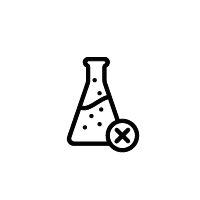
DEPRESSANT ADDITIVES
PARAGROUP DR 3225 Rheological
Rheological depressant additive “PARAGROUP DR 3225” is a specially selected combination of copolymers in a hydrocarbon solvent and is designed to improve the rheological properties of oil during transportation through infield facilities. Improvement of rheological properties affects the depression of the pour point of oil. Additive “PARAGROUP DR 3225” is produced in accordance with the current technical specifications TU 2458-013-17423242-2008 with amendments 1, 2, 3.
Application
Additive “PARAGROUP DR 3225”: is fed directly into the oil, usually after heating. Warming up the additive is especially necessary in winter conditions. It is possible to pre-prepare the working solution of the additive in a hydrocarbon solvent, followed by the supply of the additive in the form of a working solution. The additive can be used not only in prepared oil, but also in a water-oil emulsion.
Dosage
The effectiveness of “PARAGROUP DR 3225” depends on the type of oil being processed. The dosage of the additive depends on the specific conditions and the required rheological parameters of the oil pumped through the pipeline. Typical dosages can be considered 200-400 g/ton. It is recommended to supply the additive with a dosing pump.
| physical and chemical indicators | – |
| Appearance at 50C | Viscous, clear, colorless to yellow-brown liquid |
| Density at 50С, g/cm3 | 0.800 – 0.900 |
| Pour point, С, not higher | Plus 22 |
PARAGROUP DR 3230
PARAGROUP DM 1010
Depressant “PARAGROUP DM 1010” is a specially selected combination of copolymers in a hydrocarbon solvent and is designed to improve fluidity and effectively reduce the pour point of residual fuels (fuel oil) and oils during production and transportation. Depressant additive “PARAGROUP DM 1010” is produced in two grades M and N in accordance with the current specifications TU 2458-001-17423242-2008, amend.1.
Application
It is necessary to strictly follow the recommendations for the use of the additive “PARAGROUP DM 1010”: to heat up the additive, prepare the working solution of the additive and preheat the working solution of the additive and the fuel to be treated before introducing the reagent.
Dosage
The effectiveness of the PARAGROUP DM 1010 additive depends on the composition and content of paraffins in the treated fuel. The dosage of the additive depends on the specific conditions of use and can range from 100 g/ton to 1000 g/ton, more typical dosages are 200-300 g/ton of fuel oil or oil. It is recommended to supply the additive with a dosing pump.
| physical and chemical indicators | brand M | brand M, copy |
| Appearance at 500C | light yellow to light brown viscous or pasty substance | light yellow to light brown viscous or pasty substance |
| Density at 50С, g/cm3 | 0.820 – 0.940 | 0.860 – 0.960 |
| Pour point, С, not higher | 25 | 35 |
| Flash point in a closed crucible, С, not lower | 23 | 33 |
PARAGROUP DM 1045
Depressant “PARAGROUP DM 1045” is a specially selected combination of copolymers in a hydrocarbon solvent and is designed to effectively reduce the pour point of residual fuels (fuel oil) and oils during production and transportation. Depressant additive “PARAGROUP DM 1045” is produced in accordance with the current technical specifications TU 0257-014-17423242-2007 with amend. 1.
Application
Depending on the conditions of application of the PARAGROUP DM 1045 additive: it can be preheated, especially in winter conditions. It is possible to prepare a working solution of the additive in middle distillates before adding the reagent. The additive is effective in lowering the pour points of high-boiling petroleum products.
Dosage
The effectiveness of COLTEC DM 1045 depends on the composition and content of paraffins in the fuel being treated. The dosage of the additive depends on the specific conditions of use and can range from 100g/ton to 500g/ton. It is recommended to supply the additive with a dosing pump.
| physical and chemical indicators | – |
| Appearance | Light yellow to brown viscous liquid |
| Density at 20С, g/cm3 | 0.850 – 0.950 |
| Pour point, С, not higher | Plus 5 |

DUST SUPPRESSION
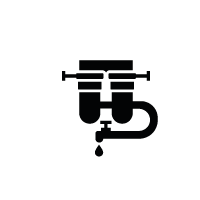
FLOCCULANT FOR WATER TREATMENT
PARAGROUP B 9901
The flocculant for water purification “B 9901” is intended for the purification of industrial, municipal and oilfield wastewater, and is also used as an auxiliary substance for thickening and dehydration of sludge and sludge. Flocculant for water purification “B 9901” is a copolymer of acrylamide with dimethylaminoethyl acrylate. The flocculant for water treatment “B 9901” is produced in two grades F1 and F2, depending on the composition, technical characteristics and conditions of use, in accordance with the current technical specifications TU 2216-047-17423242-2011.
| physical and chemical indicators | Brand F1 | Mark F2 |
| Appearance | Granular white to light beige powder | Granular white to light beige powder |
| Bulk density, g/cm3 | 0.55 – 0.80 | 0.75 – 1.00 |
| pH 0.1% aqueous solution, unit, no more | 6.0 | 6.0 |
PARAGROUP B 9967
Flocculant “B 9967” is a copolymer of acrylamide with a quaternary cationic monomer. The flocculant “B 9967” is intended for the treatment of industrial, municipal and oilfield wastewater, and is also used as an auxiliary substance for the thickening and dehydration of sludge and sludge. Flocculant B 9967 is used for conditioning various municipal and industrial wastewater and sludge in the processes of mechanical or static separation of the solid phase from the liquid. The most effective operating pH range (4÷9). Flocculant B 9967 is not applicable for drinking water treatment processes. Flocculant “B 9967” is produced in accordance with the technical specifications TU 2216-026-26913347-2015.
| physical and chemical indicators | – |
| Appearance | Amorphous powder from white to light beige |
| Bulk density, g/cm3 | 6.5-11.5 |
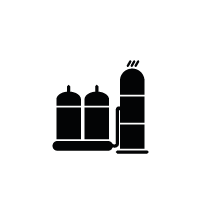
H2S SCAVENGERS
PARAGROUP PS1615 Oil Soluble
Hydrogen sulfide absorber “PARAGROUP PS 1615” is an oil-soluble composition of condensation products of tertiary amines.
The absorber is designed to bind hydrogen sulfide and acid mercaptans in oil, oil products, including residual oil products and gas condensate. The absorber is used in the processes of extraction and treatment of oil and gas at oil refineries and at oil and oil products transshipment points.
Absorber “PARAGROUP PS 1615” is manufactured in accordance with the technical specifications TU 2413-017-17423242-2012
Application
Hydrogen sulfide absorber “PARAGROUP PS 1615” should be supplied as early as possible to the oil and oil product collection or processing system in order to increase the contact time of the reagent with hydrogen sulfide (mercaptans). The input of the reagent can be carried out both continuously with the help of dosing devices, and periodically. However, in any case, intensive mixing of the reagent with oil and oil products should be ensured.
Dosage
The effectiveness of the introduction of “PARAGROUP PS 1615” depends on the degree of distribution of the reagent in the environment of the oil product. This is especially important for viscous oil products (fuel oil, boiler fuels). Heating such oil products to 70-800C before adding the additive significantly improves the action of the absorber.
The dosage of the absorber can vary from 5 to 15 g per 1 g of hydrogen sulfide.
| physical and chemical indicators | Grade A |
| Appearance | homogeneous liquid from colorless to amber color |
| Density at 20°С, g/cm3 | 0.800 – 0.900 |
| Pour point, С, not higher | minus 40 |
| Kinematic viscosity, mm2/s at 20С, not less than | 4.0 |
| Kinematic viscosity, mm2/s at 50С, not less than | 2.0 |
PARAGROUP PS1632 Water Soluble
Hydrogen sulfide absorber “PARAGROUP PS 1632” is designed to bind hydrogen sulfide and acid mercaptans in oil and oil products, as well as in gas and water environments. The use of the absorber PARAGROUP PS 1632 is envisaged at oil refining enterprises, at oil products and crude oil transshipment points in ports, as well as at oil, gas and gas condensate production enterprises.
The absorber PARAGROUP PS 1632 is a composition of the condensation product of aldehydes with ammonia with the addition of alkyldimethylamines in a water-alcohol solution.
Absorber PARAGROUP PS 1632 is produced in four grades depending on the composition and technical characteristics in accordance with the current technical specifications TU 2416-020-17423242-2008 with amend. 12.
| physical and chemical indicators | A1 | A2 | H1 | H2 |
| Appearance | clear liquid from colorless to yellow | clear liquid from colorless to yellow | clear liquid from colorless to yellow | clear liquid from colorless to yellow |
| Density, at 20°С, g/cm3 | 0.88 – 1.15 | 1.00 – 1.22 | 0.88 – 1.15 | 1.00 – 1.22 |
| Pour point, °С, not higher | Minus 35 | Minus 12 | Minus 45 | Minus 15 |
| pH value, units | 9.0 – 11.0 | 9.0 – 11.0 | 6.0 – 8.5 | 6.0 – 8.5 |
PARAGROUP PS 1666 Water Soluble
Hydrogen sulfide absorber “PARAGROUP PS 1666” is a specially selected composition of formalin solution in alcohol or ethylene glycol. The absorber is designed to bind hydrogen sulfide and acid mercaptans in oil and oil products, as well as in gas and water media. The absorber is used at oil refining enterprises, at oil products and crude oil transshipment points in ports and at oil, gas and gas condensate production enterprises.
Absorber “PARAGROUP PS 1666” is produced in three grades A1, A2, M in accordance with the current specifications TU 2417-021-17423242-2009 with amend. 1, 2, 3, 4, 5, 6.
Application
The efficiency of introducing the absorber “PARAGROUP PS 1666” depends on the degree of distribution of the reagent in the medium of the processed product. This is especially important for viscous oil products (fuel oil, boiler fuels). Heating such oil products to 50-60C before adding the additive greatly facilitates the action of the absorber. Depending on the specific conditions of use, the dosage of the absorber can vary from 4 to 10 g per 1 g of hydrogen sulfide.
Dosage
In order to increase the contact time of the reagent with hydrogen sulfide (mercaptans), the hydrogen sulfide scavenger should be supplied as early as possible to the system with the product to be treated. The input of the reagent can be carried out both continuously and periodically. The supply of hydrogen sulfide absorber must be carried out using dosing pumps. However, in any case, intensive mixing of the reagent with the oil product must be ensured.
| physical and chemical indicators | Brand A2 | Mark M | Brand A1 |
| Appearance | homogeneous liquid from colorless to yellow | clear liquid from colorless to yellow | homogeneous liquid from colorless to yellow |
| pH value, units, not less than | 7.0 | 7.0 | 7.0 |
| Density at 20°С, g/cm3 | 0.950 – 1.130 | 0.940 – 1.104 | 0.870 – 1.110 |
| Pour point, °С, not higher | minus 35 | minus 50 | minus 45 |
PARAGROUP PS1657
Hydrogen sulfide absorber “PARAGROUP PS 1657” is an aqueous-alcoholic solution of triazines of various concentrations and is designed to bind hydrogen sulfide and acid mercaptans in oil and oil products, gas and aqueous media at oil, gas, gas condensate production enterprises and at oil refineries.
Absorber “PARAGROUP PS 1657” is produced in three grades A, B and C in accordance with the specifications TU 2458-007-17423242-2014.
Application
In order to increase the contact time of the reagent with hydrogen sulfide (mercaptans), the hydrogen sulfide absorber “PARAGROUP PS 1657” should be supplied as early as possible to the system with the product being processed. The input of the reagent can be carried out both continuously and periodically. The supply of hydrogen sulfide absorber must be carried out using dosing pumps. However, in any case, intensive mixing of the reagent with the oil product must be ensured.
Dosage
The efficiency of introducing the absorber “PARAGROUP PS 1657” depends on the degree of distribution of the reagent in the environment of the processed product. This is especially important for viscous oil products (fuel oil, boiler fuels). Heating such oil products to 50-60C before adding the additive significantly improves the action of the absorber. Depending on the specific conditions of use, the dosage of the absorber can vary from 5 to 15 g per 1 g of hydrogen sulfide.
| physical and chemical indicators | Grade A | Grade B | Grade C |
| Appearance | light yellow to dark brown liquid | light yellow to dark brown liquid | light yellow to dark brown liquid |
| Density, at 20°С, g/cm3 | 0.920 – 1.090 | 1,000 – 1,120 | 0.950 – 1.150 |
| Pour point, °С, not higher | minus 20 | minus 40 | minus 45 |
| pH value, not lower | 8.0 | 8.5 | 9.0 |
PARAGROUP PS 1658
Hydrogen sulfide absorber “PARAGROUP PS 1658” is a composition of the main component – the product of the condensation of amines with aldehydes in a water-alcohol solvent.
The absorber is designed to bind hydrogen sulfide and acid mercaptans in oil and oil products, including residual oil products, as well as in gas and water media. The absorber is used at oil refining enterprises, at transshipment points for oil products and crude oil in ports, and at oil, gas and gas condensate production enterprises.
Absorber “PARAGROUP PS 1658” is produced in accordance with the current technical specifications TU 2416-028-17423242-2009 with amend. 12.
Application
In order to increase the contact time of the reagent with hydrogen sulfide (mercaptans), the reagent should be supplied as early as possible to the system with the product being processed. The input of the reagent can be carried out both continuously and periodically. The supply of the reagent must be carried out using dosing pumps. However, in any case, intensive mixing of the reagent with the oil product must be ensured.
Dosage
The efficiency of introducing the absorber “PARAGROUP PS 1658” depends on the degree of distribution of the reagent in the medium of the processed product. This is especially important for viscous oil products (fuel oil, boiler fuels). Heating such oil products to 60-80C before adding the additive significantly improves the action of the absorber. Depending on the specific conditions of use, the dosage of the absorber can vary from 5 to 15 g per 1 g of hydrogen sulfide.
| physical and chemical indicators | Grade A |
| Appearance | Clear liquid from light yellow to light brown |
| pH value, units, not less than | 7.5 |
| Density at 20°С, g/cm3 | 0.960 – 1.100 |
| Pour point, С, not higher | minus 50 |
PARAGROUP PS 1650
The absorber of hydrogen sulfide and mercaptans “PARAGROUP PS 1650” is a water-alcohol solution of triazines of various concentrations. The absorber is designed to bind hydrogen sulfide and acid mercaptans in oil and oil products, including gas condensate and residual oil products, as well as in gas and water environments at oil, gas, gas condensate production enterprises and at oil and gas processing enterprises, as well as at oil product transshipment points and crude oil in ports.
Absorber “PARAGROUP PS 1650” is produced in two grades K and C in accordance with the current specifications TU 2458-083-17423242-2013, amend. 1.2.
Application
In order to increase the contact time of the reagent with hydrogen sulfide and mercaptans, COLTEC PS 1650 should be supplied as early as possible to the system with the processed product. The supply of hydrogen sulfide absorber must be carried out using dosing pumps. However, in any case, intensive mixing of the reagent with the oil product must be ensured.
Dosage
The effectiveness of the introduction of the hydrogen sulfide absorber and mercaptans “PARAGROUP PS 1650” depends on the degree of distribution of the reagent in the environment of the processed product. This is especially important for viscous oil products (fuel oil, boiler fuels). Heating such oil products to 70-90°C before adding the additive significantly improves the action of the absorber. Depending on the specific conditions of use, the dosage of the absorber can vary from 4 to 8 g per 1 g of hydrogen sulfide.
| physical and chemical indicators | Mark K | Grade C |
| Appearance | colorless to dark yellow liquid | colorless to dark yellow liquid |
| Density, at 20°С, g/cm3 | 0.930 – 1.040 | 0.910 – 1.020 |
| Pour point, °С, not higher | Minus 40 | Minus 50 |
| pH value, not lower | 10.0 | 10.0 |
PARAGROUP PS 1758
Hydrogen sulfide and mercaptan absorber “PARAGROUP PS 1758” is a specially selected water-soluble composition of the condensation products of amines with aldehydes of various concentrations and is designed to bind hydrogen sulfide and acid mercaptans in oil and oil products, gas and aqueous media at oil, gas, gas condensate production enterprises and oil refineries.
Absorber “PARAGROUP PS 1758” is produced in two grades A and B in accordance with the current specifications TU 2416-066-17423242-2012.
Application
In order to increase the contact time of the reagent with hydrogen sulfide and mercaptans, PARAGROUP PS 1758 should be supplied as early as possible to the system with the product being processed. The supply of hydrogen sulfide absorber must be carried out using dosing pumps. However, in any case, intensive mixing of the reagent with the oil product must be ensured.
Dosage
The efficiency of the introduction of the hydrogen sulfide absorber and mercaptans “PARAGROUP PS 1758” depends on the degree of distribution of the reagent in the environment of the processed product. This is especially important for viscous oil products (fuel oil, boiler fuels). Heating such oil products to 70-90C before adding the additive significantly improves the action of the absorber. Depending on the specific conditions of use, the dosage of the absorber can vary from 4 to 8 g per 1 g of hydrogen sulfide.
| physical and chemical indicators | Grade A | Grade B |
| Appearance | light brown to dark brown liquid | light brown to dark brown liquid |
| Density, at 20°С, g/cm3 | 1.030 – 1.150 | 1,000 – 1,120 |
| Pour point, °С, not higher | minus 30 | minus 45 |
| pH value, not lower | 9.0 | 9.0 |
PARAGROUP PS1782
Hydrogen sulfide and mercaptan absorber “PARAGROUP PS 1782” is a specially selected water-soluble composition of condensation products of amines with aldehydes of various concentrations. The absorber is designed to bind hydrogen sulfide and acid mercaptans in oil and oil products, including residual oil products, as well as in gas and water environments at oil, gas, gas condensate production enterprises and oil refineries, as well as at oil products and crude oil transshipment points in ports.
Absorber “PARAGROUP PS 1782” is produced in accordance with the current specifications TU 2633-073-17423242-2012, amend.1
Application
In order to increase the contact time of the reagent with hydrogen sulfide and mercaptans, COLTEC PS 1782 should be supplied as early as possible to the system with the processed product. The supply of hydrogen sulfide absorber must be carried out using dosing pumps. However, in any case, intensive mixing of the reagent with the oil product must be ensured.
Dosage
The effectiveness of the introduction of the hydrogen sulfide absorber and mercaptans “PARAGROUP PS 1782” depends on the degree of distribution of the reagent in the environment of the processed product. This is especially important for viscous oil products (fuel oil, boiler fuels). Heating such oil products to 70-90°C before adding the additive significantly improves the action of the absorber. Depending on the specific conditions of use, the dosage of the absorber can vary from 4 to 8 g per 1 g of hydrogen sulfide.
| physical and chemical indicators | Grade A |
| Appearance | light yellow to dark brown liquid |
| Density, at 20°С, g/cm3 | 1,000 – 1,170 |
| Pour point, °С, not higher | minus 50 |
| pH value, units | 8.0 – 10.0 |
PARAGROUP PS 1775
Hydrogen sulfide and mercaptan absorber “PARAGROUP PS 1775” is a water-alcohol solution of substituted propionaldehyde. The absorber is designed to bind hydrogen sulfide and acid mercaptans in oil and oil products, including gas condensate and residual oil products, as well as in gas and water environments at oil, gas, gas condensate production enterprises and oil refineries, as well as at oil product and crude oil transshipment points in ports.
Absorber “PARAGROUP PS 1775” is produced in two grades A and B in accordance with the current specifications TU 2633-067-17423242-2012.
Application
In order to increase the contact time of the reagent with hydrogen sulfide and mercaptans, PARAGROUP PS 1775 should be supplied as early as possible to the system with the product being processed. The supply of hydrogen sulfide absorber must be carried out using dosing pumps. However, in any case, intensive mixing of the reagent with the oil product must be ensured.
Dosage
The effectiveness of the introduction of the hydrogen sulfide absorber and mercaptans “PARAGROUP PS 1775” depends on the degree of distribution of the reagent in the medium of the processed product. This is especially important for viscous oil products (fuel oil, boiler fuels). Heating such oil products to 70-90C before adding the additive significantly improves the action of the absorber. Depending on the specific conditions of use, the dosage of the absorber can vary from 4 to 8 g per 1 g of hydrogen sulfide.
| physical and chemical indicators | Grade A | Grade B |
| Appearance | colorless to yellow liquid | colorless to yellow liquid |
| Density, at 20°С, g/cm3 | 1,000 – 1,140 | 1.080 – 1.210 |
| Pour point, °С, not higher | minus 45 | minus 20 |
PARAGROUP PS2100
Hydrogen sulfide absorber “PARAGROUP PS 2100” is a balanced composition of mineral alkalis.
Hydrogen sulfide absorber “PARAGROUP PS 2100” is designed to bind hydrogen sulfide and acid mercaptans in oil, gas and water media.
The use of the absorber “PARAGROUP PS 2100” is provided for at oil, gas and gas condensate production enterprises, at oil and gas processing enterprises, as well as at oil products and crude oil transshipment points, in ports.
Hydrogen sulfide absorber “PARAGROUP PS 2100” is produced in accordance with the current specifications TU 24583-021-26913347-2015.
| physical and chemical indicators | Grade A |
| Appearance | clear liquid from colorless to dark yellow |
| Density at 20°С, g/cm3 | 1.25 – 1.43 |
| Pour point, °С, not higher | minus 25 |
PARAGROUP PS2200
Hydrogen sulfide absorber “PARAGROUP PS 2200” is:
* grade A – composition of derivatives of zinc salts of organic acids in a hydrocarbon solvent;
* grade K – composition of derivatives of zinc salts of organic acids in an alcohol solvent.
hydrogen sulfide absorber “PARAGROUP PS 2200” is designed to bind hydrogen sulfide and acid mercaptans in oil and oil products, including residual oil products.
The use of the absorber “PARAGROUP PS 2200” is provided for at oil and gas processing enterprises and at oil and gas condensate production enterprises, as well as at points for transshipment and processing of petroleum products and crude oil
Absorber “PARAGROUP PS 2200” is produced in two grades A, K in accordance with the current specifications TU 2458-010-26913347-2014.
| physical and chemical indicators | Grade A | Mark K |
| Appearance | clear liquid from colorless to yellow to color | clear liquid from colorless to yellow to color |
| Density at 20°С, g/cm3 | 0.880 – 1.050 | 0.950 – 1.140 |
| Pour point, °С, not higher | Minus 20 | zero |
PARAGROUP PS1600
The neutralizer “PARAGROUP PS 1600” is a water-soluble composition of ferric chloride.
Neutralizer “PARAGROUP PS 1600” is designed for:
– binding of hydrogen sulfide and acid mercaptans in oil and residual oil products, as well as in gas and water media.
– industrial and waste water treatment;
– use as a coagulant for urban wastewater treatment.
The PARAGROUP PS 1600 neutralizer is manufactured in accordance with the current technical specifications TU 2152-087-17423242-2014.
Application
The use of the neutralizer “PARAGROUP PS 1600” is provided for at oil refining enterprises, at points for transshipment of petroleum products and crude oil in ports, as well as at oil, gas and gas condensate production enterprises.
| physical and chemical indicators | Grade A |
| Appearance | homogeneous liquid from red-brown to dark brown |
| Density, at 20°С, g/cm3 | 1.310 – 1.490 |
| Pour point, °С, not higher | Minus 30 |
| pH value of 1% aqueous solution, units, not more than | 3.0 |

INHIBITORS AND SOLVENTS OF ASPHALTENE DEPOSITS
PARAGROUP ASPO 3801
The solvent for asphaltene-resin-paraffin deposits “PARAGROUP 3801” is intended for flushing oil pipelines, downhole and oilfield equipment from deposits of paraffin deposits formed in the processes of production, collection and transportation of oil. The reagent has a high penetrating, dissolving and washing ability in relation to the ARPD components.
Solvent ASPO “PARAGROUP 3801” is a mixture of aliphatic and aromatic solvents.
ASPO solvent “PARAGROUP 3801” is produced in accordance with TU 2458 – 030 – 26913347 – 2016.
Application
Continuous dosing or intermittent treatment at GZU, wells, at the inlet of oil treatment plants, preliminary discharge
Dosage
The optimal flow rate is established based on the results of pilot tests at the facility.
To achieve the maximum economic effect of using the ARPO solvent, preliminary laboratory tests are recommended.
| physical and chemical indicators | * |
| Appearance | Homogeneous transparent liquid from colorless to brown |
| Density at 20С, g/cm3 | 0.75 – 0.83 |
| Pour point, 0С, not higher | Minus 50 |
| Kinematic viscosity, mm2/s, at + 20 0C, no more | 20 |
| Kinematic viscosity, mm2/s, at – 40 0С, no more | 500 |
| Flash point in an open crucible, 0C, no more | 23 |
| Boiling point, 0C, not less than | thirty |
| Corrosion aggressiveness of the commodity form, g/(m2・h) – corrosion rate of St-3 at 20 0C, within 6 hours for the well stock, not more than | 0.089 |
| Corrosion aggressiveness of the commodity form, g/(m2・h) – corrosion rate of St-3 at 20 0C, within 24 hours for other directions, not more than | 0.125 |
PARAGROUP ASPO 3821
Solvent for asphaltene-resin-paraffin deposits “PARAGROUP 3821” is intended for erosion of deposits of paraffins, tars and asphaltenes in pipelines at oil refineries. Solvent ASPO “PARAGROUP 3821” is a mixture of two components:
component A – derivatives of sulfonic acids in a hydrocarbon solvent, component C – a mixture of terpenes.
Components A, C are flammable liquids.
ASPO solvent “PARAGROUP 3821” is produced in accordance with TU 2458 – 031 – 26913347 – 2016.
Application
Continuous dosing at GZU, wells, at the inlet of oil treatment plants, preliminary discharge .
Dosage
The optimal flow rate is established based on the results of pilot tests at the facility.
To achieve the maximum economic effect of using the ARPD solvent, preliminary laboratory tests are recommended.
| physical and chemical indicators | Grade A | Grade B | Grade C |
| Appearance | Viscous liquid from light brown to black | Viscous liquid from light brown to black | Clear, colorless to light brown liquid |
| Density at 20С, g/cm3 | 0.95-1.05 | 0.95-1.05 | 0.80 – 0.90 |
| Pour point, 0С, not higher | – thirty | – 50 | – 50 |
| Kinematic viscosity at + 20 0С, not higher, mm2/s | 150 | 50 | 10 |
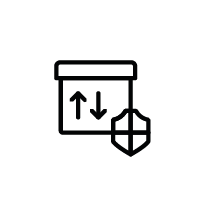
NEUTRALIZERS
PARAGROUP 54505
The neutralizer “PARAGROUP 54505” is a concentrated solution of amines and is produced in three grades: grade A – in an aromatic solvent, grade B – in the form of an aqueous solution, grade C – in aromatic and / or toluene. The neutralizer is designed to control pH in the upper flows of columns and condensing systems of primary oil refining units at oil refineries. The neutralizer has a high neutralizing capacity, which makes it possible to keep the pH level of drainage water stable within a narrow range of 5.5 – 6.5. Neutralization products do not form deposits on the metal surface. The HERCULES 54505 neutralizer is produced in accordance with TU 38.401-58-238-01 with amend. 1, 2, 3, 4, 5.
Application
The PARAGROUP 54505 neutralizer is used in the oil refining industry and is designed to provide effective control over the pH value in the condensation-refrigeration systems of primary oil refining units.
Dosage
The effectiveness of the Paragroup 54505 neutralizer depends on the specific conditions of use, so industrial dosages of the reagent can range from 3 g/ton to 20 g/ton at oil refineries. It is recommended to supply the neutralizer with a dosing pump.
| physical and chemical indicators | brand A | brand B | grade C |
| Appearance | Homogeneous transparent liquid from colorless to amber color | Homogeneous transparent liquid from colorless to amber color | Homogeneous transparent liquid from colorless to amber color |
| Density at 20С, g/cm3 | 0.850 – 0.890 | 0.970 – 0.990 | 0.810 – 0.910 |
| Pour point, С, not higher | minus 40 | minus 30 | minus 40 |
| Neutralizing capacity, l/g-eq. HCl, not higher | 0.300 | 0.300 | 0.200-0.450 |

OXYGEN SCAVENGERS
PARAGROUP PK1210
Oxygen absorber “PK 1210” is designed to remove dissolved oxygen from liquid media – it effectively removes oxygen from fresh and mineralized process water. Oxygen absorber “PK 1210” is a water-soluble mixture of sulfites and bisulfites. The oxygen absorber “PK 1210” is produced in two grades A and H, depending on the technical characteristics and conditions of use according to TU 2142-046-17423242-2011.
Application
The PK 1210 oxygen absorber should be supplied to the system as early as possible in order to increase the contact time of the reagent with oxygen. The input of the reagent can be carried out both continuously with the help of dosing devices, and periodically. However, in any case, intensive mixing of the reagent with the treated medium must be ensured.
Dosage
The efficiency of introducing oxygen absorber “PK 1210” depends on the degree of distribution of the reagent in the treated medium. The dosage of the oxygen absorber “PK 1210” can vary from 5 to 8 g per 1 g of oxygen.
| physical and chemical indicators | brand A | brand H |
| Appearance, color | clear liquid from colorless to light yellow | transparent liquid from light to bright pink color |
| Density at 20С, g/cm3 | 1.320 – 1.460 | 1.190 – 1.330 |
| Pour point, С, not higher | minus 40 | minus 10 |
| The pH value of a 1% aqueous solution, units | 4 – 6 | 2-4 |

PARAFFIN DEPOSITION INHIBITOR
PARAGROUP DN 3130
Paraffin dispersant “PARAGROUP DN 3130” is a specially selected combination of surfactants in a hydrocarbon solvent and is designed to effectively remove paraffin deposits and control their formation in the oil and oil refining industry. The dispersant penetrates and removes wax deposits from the system and leaves a thin film on the metal surface that repels the wax and keeps the system clean. The dispersant “PARAGROUP DN 3130” is produced in two grades A and B in accordance with the current specifications TU 2458-004-17423242-2008.
It is necessary to strictly follow the company’s recommendations for the use of the dispersant “PARAGROUP DN 3130”. It is recommended to prepare a working solution of the dispersant. It is desirable to preheat the working solution of the dispersant before entering the system.
Dosage
The effectiveness of the dispersant “PARAGROUP DN 3130” depends on the specific conditions of use and the complexity of processing, the composition and content of paraffins in the treated fuel. The dosage of the dispersant can range from 50 g/ton to 1000 g/ton. It is recommended to supply the dispersant with a dosing pump.
| physical and chemical indicators | brand A | grade B |
| Appearance | light yellow to light brown liquid | light yellow to light brown liquid |
| Density at 20С, g/cm3 | 0.860 – 0.920 | 0.840 – 0.900 |
| Pour point, С, not higher | minus 18 | minus 30 |
| Flash point in a closed crucible, С, not lower | 25 | 25 |
PARAGROUP DN 3149
Paraffin inhibitor “PARAGROUP DN 3149” is a specially selected combination of copolymers in a hydrocarbon solvent and is designed to prevent paraffin precipitation in the processes of oil production and transportation, to reduce the pour point of oils and residual oil products. The action of the reagent is due to its effect on the crystal structure of paraffins in the composition of oil / oil products. Paraffin inhibitor “PARAGROUP DN 3149” is produced in accordance with the current technical specifications TU 2458-034-17423242-2010 with amend. 1.
Application
As a depressant additive, the inhibitor “PARAGROUP DN 3149” is introduced into fuel oil in the form of a 5 or 10% solution in diesel fuel. Before preparing the solution, the additive must be heated to a temperature of 55-60 ° C (it becomes well fluid). In the same way, it is desirable to introduce an additive into oil in the fields.
Dosage
The effectiveness of the “PARAGROUP DN 3149” additive depends on the composition and content of paraffins in the treated fuel. The dosage of the reagent depends on the specific conditions of use and can range from 100 g/ton to 1000 g/ton, the most typical dosages are 100-200 g/ton of oil or fuel oil. The effectiveness of the additive is affected by its good distribution (mixing) over the volume of the processed product.
It is recommended to supply the inhibitor using a dosing pump.
| physical and chemical indicators | – |
| Appearance | Ointment-like liquid from light yellow to brown |
| Density at 50С, g/cm3 | 0.840 – 0.940 |
| Pour point, С, not higher | Plus 25 |
PARAGROUP DN 3905
Paraffin inhibitor “PARAGROUP DN 3905” is a specially selected composition of copolymers in a hydrocarbon solvent (nefras, solvent). Paraffin inhibitor “PARAGROUP DN 3905” is designed for removal and dispersion of asphaltenes in the processes of oil production and transportation, removal of previously formed paraffin and asphaltene deposits in oil and gas production. It is also used as a pour point depressant to reduce the pour point and improve the rheological properties of oil and residual oil products, incl. fuel oils, gas oils, paraffins. Paraffin inhibitor “PARAGROUP DN 3905” is produced in accordance with the current technical specifications TU 2458-003-70846276-2014.
Application
It is necessary to strictly follow the recommendations for the use of the COLTEC DN 3905 inhibitor: to heat up the inhibitor, prepare the working solution of the inhibitor and preheat the working solution of the inhibitor and the fuel to be treated before introducing the reagent.
Dosage
The effectiveness of the Inhibitor “PARAGROUP DN 3905” depends on the composition and content of paraffins in the treated fuel. The dosage of the inhibitor depends on the specific conditions of use and can range from 100 g/ton to 1000 g/ton. It is recommended to supply the inhibitor using a dosing pump.
| physical and chemical indicators | – |
| Appearance | light yellow to dark brown liquid |
| Density at 20С, g/cm3 | 0.810 – 0.990 |
| Pour point, С, not higher | minus 35 |
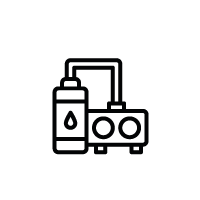
REAGENTS FOR PREPARATION OF BOILER FEED WATER
PARAGROUP B 9701
Oxygen scavenger “B 9701” is a specially selected balanced water-soluble composition of carbohydrazide
Oxygen absorber “B 9701” is designed for: absorption of dissolved oxygen in liquid media; passivation of metal surfaces; use as a deoxidizer of boiler water; corrosion control.
The oxygen absorber “B 9701” is produced in accordance with the technical specifications TU 2 165 -0 17 – 26913347 -201 5 .
Application
The PK 1210 oxygen absorber should be supplied to the system as early as possible in order to increase the contact time of the reagent with oxygen. The input of the reagent can be carried out both continuously with the help of dosing devices, and periodically. However, in any case, intensive mixing of the reagent with the treated medium must be ensured.
Dosage
The efficiency of introducing oxygen absorber “PK 1210” depends on the degree of distribution of the reagent in the treated medium. The dosage of the oxygen absorber “PK 1210” can vary from 5 to 8 g per 1 g of oxygen.
| physical and chemical indicators | – |
| Appearance | clear liquid from colorless to pink |
| Density at 20С, g/cm3 | 1.980 – 1.110 |
| Pour point, С, not higher | minus one |
| pH value, units, not less than | 7.5 |
PARAGROUP B 9750
Neutralizer “B 9750” is a composition of volatile amines based on morpholine. The V 9750 neutralizer is designed to control pH in low and medium pressure steam and condensate lines and prevent carbon dioxide corrosion. The V 9750 neutralizer is manufactured in accordance with the technical specifications TU 2458-018-26913347-2015.
| physical and chemical indicators | – |
| Appearance | colorless transparent liquid |
| Density at 20С, g/cm3 | 0.970 – 1.130 |
| Pour point, С, not higher | Minus 30 |
PARAGROUP B 9720
Dispersant “B 9720” is a specially selected water-soluble composition of sodium polyphosphates and polyacrylates
Dispersant “B 9720” is designed to prevent scale formation processes on the surface of pipelines and on heat exchange equipment, incl. in low and medium pressure boilers, and for corrosion protection.
Dispersant “B 9720” is produced in accordance with the current technical specifications TU 2490-019-26913347-2015.
| physical and chemical indicators | – |
| Appearance | clear liquid from colorless to yellow |
| Density at 20С, g/cm3 | 1,000 – 1,170 |
| Pour point, С, not higher | minus 3 |
| pH value, units, not less than | 10.0 |
PARAGROUP B 9740
Water softener “B 9740” is designed to prevent scale deposits on the internal surfaces of heat exchange equipment and household water heaters. Water softener “B 9740” is a balanced composition of polyphosphates and alkali metal phosphates. Water softener “B 9740” is produced in accordance with the technical specifications TU 2490-020-26913347-2015.
| physical and chemical indicators | – |
| Appearance | colorless transparent liquid |
| Density at 20С, g/cm3 | 0.980 – 1.140 |
| Pour point, С, not higher | 0 (zero) |
| pH value, units, not less than | 10.0 |

SCALING AND CORROSION INHIBITOR
PARAGROUP B 9305
Scale and corrosion inhibitor “B 9305” is a specially selected balanced composition of organic polymers and dispersants based on organic polyphosphonates and is designed to prevent salt precipitation and protect against corrosion of heat exchange equipment and communications in water circulation systems through cooling towers and for corrosion protection of black and non-ferrous metals. In some cases, this inhibitor is applicable in steam-condensate systems.
Scale and corrosion inhibitor “B 9305” is produced in two grades A and B in accordance with the current specifications TU 2482-003-17423242-2008 with amendments. 1.
Application
Inhibitor “B 9305” is constantly dosed into the water circulation system using a dosing pump. Dosing can be done directly from product drums or from working plastic containers. For ease of dosing, the reagent can be pre-diluted with water. It is considered more efficient to supply the reagent to make-up water. If the inhibitor is used in conjunction with a biocide, then it is applied after the biocide. Inhibitor “B 9305” is effective at evaporation rates up to 5.
Dosage
The dosage of the inhibitor “B 9305” depends mainly on the hardness of the water. As a general recommendation, we give the following dosages:
10-15 ppm with calcium hardness up to 2 meq; 15-25 ppm with water hardness up to 5 meq.; 25-50 ppm at water hardness 5-10 meq. Dosages and hardness values are given for make-up water. In the initial application of the inhibitor, shock doses of approximately 50-100 ppm are recommended for 1-3 days to form a protective film.
| physical and chemical indicators | Grade A | Grade B |
| Appearance | clear liquid from light yellow to dark brown | clear liquid from light yellow to dark brown |
| Density at 20°С, g/cm3 | 1.130 – 1.250 | 1.180 – 1.390 |
| pH value, units | 12.5 – 13.5 | 6.0 – 8.5 |
PARAGROUP B 9306
Scale and corrosion inhibitor “B 9306” is a composition of chemical components, which is based on organic polymers, phosphonates, dispersants and azole compounds. The inhibitor is designed to prevent salt precipitation and corrosion protection of heat exchange equipment and communications in water circulation systems through cooling towers, as well as in water vapor-condensate systems; to protect ferrous and non-ferrous metals from corrosion and to prevent the formation of salt deposits. In some cases, this inhibitor is applicable in steam-condensate systems.
Scale and corrosion inhibitor “B 9306” is produced in two grades A and B in accordance with the current technical specifications TU 2458-060-17423242-2012.
Application
Inhibitor “B 9306” is constantly dosed into the water circulation system using a dosing pump. Dosing can be done directly from product drums or from working plastic containers. For ease of dosing, the reagent can be pre-diluted with water. It is considered more efficient to supply the reagent to make-up water. If the inhibitor is used in conjunction with a biocide, then it is applied after the biocide. The inhibitor is effective at evaporation rates up to 5.
Dosage
The dosage of the inhibitor “B 9306” depends mainly on the hardness of the water. As a general recommendation, the working concentration of the inhibitor in the recycled water should be 20-50 g/cm3.
In the initial application of the inhibitor, shock doses of approximately 50-100 ppm in the volume of recycled water are recommended for 1-3 days to form a protective film.
| physical and chemical indicators | Grade A | Grade B |
| Appearance | light yellow to dark brown liquid | light yellow to dark brown liquid |
| Density at 20°С, g/cm3 | 1.150 – 1.300 | 1.150 – 1.450 |
| Pour point, С, not higher | minus 10 | minus 10 |
PARAGROUP B 9402
Scale inhibitor “B 9402” is a balanced composite composition based on complexing phosphorus-containing organic compounds.
The inhibitor is intended for use as an inhibitor of inorganic salt deposits in technological processes at all stages of oil production, transportation and treatment, as well as in water circulation cooling and heat supply systems.
Scale and corrosion inhibitor “B 9402” is produced in accordance with the current technical specifications TU 2458-074-17423242-2012.
Application
Inhibitor ” B 9402″ is constantly dosed into the system using a dosing pump. Dosing can be done directly from product drums or from working plastic containers. For ease of dosing, the reagent can be pre-diluted with water. For water circulation systems, it is considered more efficient to supply the reagent to make-up water.
Dosage
The dosage of the inhibitor “B 9402” depends mainly on the hardness of the water. As a general recommendation, the working concentration of the inhibitor in the recycled water should be 20-50 g/cm3.
In the initial application of the inhibitor on circulating water cooling systems, shock dosages of approximately 50-100 ppm in the volume of circulating water are recommended to create a working concentration of the reagent.
| physical and chemical indicators | – |
| Appearance | light yellow to brown liquid |
| Density at 20С, g/cm3, within | 0.920 – 1.150 |
| Pour point, С, not higher | minus 45 |
| pH value, units, not less than | 7.0 |
PARAGROUP B 9450
Scale inhibitor “B 9450” is a balanced composition of chemical components in an aqueous or water-glycol solution, which is based on carboxylic acid oligomers; the reagent also includes organic phosphonates. A feature of the composition of the inhibitor is the low content of phosphonic acids.
Scale inhibitor “B 9450” is produced in two grades A and C in accordance with the current technical specifications TU 2458-086-17423242-2013
Application
Scale inhibitor “B 9450” is designed to prevent precipitation and deposition of salts on the walls of various technological pipelines and apparatus used in water circulation systems, as well as in steam-condensate systems; It can be used both as part of complex processing and separately.
The use of an inhibitor is recommended in cases of strict standards for the content of phosphonates when discharging recycled water into reservoirs for fisheries purposes (at a maximum dosage of 50 mg/l of the inhibitor, the phosphorus content is not more than 0.2 mg/l).
Dosage
Dosage of scaling inhibitor “B 9450” If there are restrictions on the discharge of recycled water in terms of phosphorus (no more than 0.2 mg/l), the maximum dosage of the inhibitor is up to 50 mg/l.
In the absence of any restrictions on the composition of recycled water, there are no restrictions on the dosage of the inhibitor.
| physical and chemical indicators | Grade A | Grade C |
| Appearance | homogeneous liquid from light yellow to brown | homogeneous liquid from light yellow to brown |
| Density at 20С, g/cm3 | 0.980 – 1.120 | 1.020 – 1.170 |
| Pour point, С, not higher | 0 (zero) | minus 15 |
| pH value, unit, no more | 2.0 | 2.0 |
PARAGROUP B 9408
Scale inhibitor “B 9408” is a specially selected balanced composition of organic polymers and dispersants based on organic phosphonates in a water-glycol solution. The product is designed to prevent the precipitation and deposition of salts on various technological pipelines and devices used in the process of oil and gas production and processing, as well as in water vapor-condensate systems. The inhibitor can be used for corrosion protection of ferrous and non-ferrous metals, both as part of a complex treatment, and separately.
In accordance with the current technical specifications TU 2482-030-17423242-2009, amend. 1, scale inhibitor “B 9408” is produced in two grades: A and C.
Application
In most cases, the B 9408 inhibitor is continuously dosed into the system using a dosing pump. The dosage can be carried out both directly from the drums with the product, and from the working reagent containers. For ease of dosing, the reagent can be pre-diluted with water. If the inhibitor is used in conjunction with a biocide, then it is applied after the biocide.
Dosage
The dosage of inhibitor “B 9408” directly depends on the actual conditions of use and water hardness and can be in the range of 50 – 500 g / t.
| physical and chemical indicators | Grade A | Grade C |
| Appearance: | clear liquid from light yellow to dark amber color | clear liquid from light yellow to dark amber color |
| Density at 20C, g/cm3: | 1.120 – 1.220 | 1.120 – 1.220 |
| Pour point, C, within: | minus 12 | minus 40 |
| pH value, units: | 10.5 – 12.5 | 10.5 – 12.5 |
PARAGROUP B 9421
Scale inhibitor “B 9421” is a balanced composition of chemical components in a water-alcohol solution, which is based on organic phosphonates. The product is designed to prevent precipitation and deposition of salts on various technological pipelines and apparatuses used in the process of oil and gas production and processing, as well as in water vapor-condensate systems. The inhibitor can be used for corrosion protection of ferrous and non-ferrous metals, both as part of a complex treatment, and separately.
In accordance with the current technical specifications TU 2482-031-17423242-2009 with amendments 1.2, the scale inhibitor “B 9421” is produced in three grades: A, B, C.
Application
In most cases, the B 9421 inhibitor is continuously dosed into the system using a dosing pump. The dosage can be carried out both directly from the drums with the product, and from the working reagent containers. For ease of dosing, “B 9421” can be pre-diluted with water. If the inhibitor is used in conjunction with a biocide, then it is applied after the biocide.
Dosage
The dosage of inhibitor “B 9421” directly depends on the actual conditions of use and water hardness and can be in the range of 50 – 500 g / t.
| physical and chemical indicators | Grade A | Grade B | Grade C |
| Appearance | Colorless to light yellow liquid | Colorless to dark amber liquid | Light yellow to dark amber liquid |
| Density at 20С, g/cm3 | 0.940-1.110 | 1.070-1.250 | 1.030-1.210 |
| Pour point, °С, not higher | Minus 50 | Minus 50 | Minus 50 |
| pH value, units | 0.5-2.0 | 4.0-7.0 | 5.0-8.0 |
PARAGROUP 2151
Scale inhibitor “PARAGROUP 2151” is designed for complex protection of oilfield equipment from calcium sulfate and calcium carbonate deposits in conditions of high salinity of produced waters.
Scale inhibitor PARAGROUP 2151 is designed to effectively prevent the precipitation of salts of various chemical compositions at all stages of oil production, transportation and treatment; protection of wells, deep and surface oilfield equipment in conditions of high salinity of produced waters.
Scale inhibitor PARAGROUP 2151 is a balanced composition based on phosphonic acid derivatives in water and/or alcohols, produced in three grades A1, A2, A3 depending on the area and conditions of use in accordance with TU 2458-035-26913347-2016.
Application
Continuous dosing or intermittent treatment at GZU, wells, at the inlet of oil treatment plants, preliminary discharge, pressure maintenance system.
Dosage
The optimal dosage is established based on the results of pilot tests at the facility.
To achieve the maximum economic effect of using a scale inhibitor, it is recommended to conduct preliminary laboratory tests.
| physical and chemical indicators | Brand A1 | Brand A2 | Brand A3 |
| Appearance | Homogeneous transparent liquid from colorless to dark brown. | Homogeneous transparent liquid from colorless to dark brown. | Homogeneous transparent liquid from colorless to dark brown. |
| Density at 20 C, g/cm3 | 0.98±0.05 | 1.11±0.05 | 1.15±0.05 |
| Pour point, 0С, not higher | – 50 | – 50 | – 50 |
| Kinematic viscosity, mm2/s, no more, at + 20 °С | 20 | 20 | 20 |
| Kinematic viscosity, mm2/s, no more, at – 40 °С | 500 | 500 | 500 |
| Mass fraction of non-volatile substances (active substance),%, no more | 15 | 15 | 15 |
| Solubility and dispersibility in saline water/oil | Soluble/dispersible | Soluble/dispersible | Soluble/dispersible |
| Efficiency of scale inhibition at 25 mg/dm3 inhibitor, %, not less | 90 | 90 | 90 |
| Corrosion aggressiveness of the commodity form, g/(m2*h), not more than, corrosion rate St3 at 20 0C for 6 hours for the stock of wells | 0.089 | 0.089 | 0.089 |
| Corrosion aggressiveness of the commodity form, g/(m2*h), no more than, corrosion rate St3 at 20 0C for 24 hours for other directions | 0.125 | 0.125 | 0.125 |
PARAGROUP 2152
Scale inhibitor “PARAGROUP 2152” is designed for comprehensive protection of oilfield equipment from calcium sulfate and calcium carbonate deposits in conditions of high salinity of produced waters.
Scale inhibitor ” PARAGROUP 2152″ is intended for:
- effective prevention of sedimentation of salts of different chemical composition at all stages of oil production, transportation and treatment
- protection of wells, deep and surface oilfield equipment in conditions of high salinity of produced waters.
Scale inhibitor ” PARAGROUP 2152″ is a balanced composition based on phosphonic acid derivatives in water and/or alcohols, produced in three grades A1, A2, A3 depending on the area and conditions of use in accordance with TU 2458-036-26913347-2016.
Application
Continuous dosing or intermittent treatment at GZU, wells, at the inlet of oil treatment plants, preliminary discharge, pressure maintenance system.
Continuous dosing or intermittent treatment at GZU, wells, at the inlet of oil treatment plants, preliminary discharge, pressure maintenance system.
Dosage
The optimal dosage is established based on the results of pilot tests at the facility.
To achieve the maximum economic effect of using a scale inhibitor, it is recommended to conduct preliminary laboratory tests.
| physical and chemical indicators | Brand A1 | Brand A2 | Brand A3 |
| Appearance | Homogeneous transparent liquid from colorless to dark brown. | Homogeneous transparent liquid from colorless to dark brown. | Homogeneous transparent liquid from colorless to dark brown. |
| Density at 20 C, g/cm3 | 0.98±0.05 | 1.11±0.05 | 1.15±0.05 |
| Pour point, 0С, not higher | – 50 | – 50 | – 50 |
| Kinematic viscosity, mm2/s, no more, at + 20 °С | 20 | 20 | 20 |
| Kinematic viscosity, mm2/s, no more, at – 40 °С | 500 | 500 | 500 |
| Mass fraction of non-volatile substances (active substance),%, no more | 15 | 15 | 15 |
| Solubility and dispersibility in saline water/oil | Soluble/dispersible | Soluble/dispersible | Soluble/dispersible |
| Efficiency of scale inhibition at 25 mg/dm3 inhibitor, %, not less | 90 | 90 | 90 |
| Corrosion aggressiveness of the commodity form, g/(m2*h), not more than, corrosion rate St3 at 20 0C for 6 hours for the stock of wells | 0.089 | 0.089 | 0.089 |
| Corrosion aggressiveness of the commodity form, g/(m2*h), no more than, corrosion rate St3 at 20 0C for 24 hours for other directions | 0.125 | 0.125 | 0.125 |
PARAGROUP IS 2142
Scale inhibitor “PARAGROUP IS 2142” is a specially developed mixture of phosphoric acid esters in methanol-ethylene glycol solvent. It is used to combat calcium carbonate and calcium sulfate deposits. Effective also against barium sulfate deposits. Scale inhibitor “PARAGROUP IS 2142” is produced in accordance with TU 2458-070-17423242-2012.
Application
Scale inhibitor ” PARAGROUP IS 2142″ is designed to control scale in wells and to protect ground equipment in the field. Its typical application is oil treatment plants. In systems of this kind, as well as in waterflooding systems, the reagent is supplied continuously. It can be pumped periodically into the annulus of production wells.
Dosage
The dosage of scale inhibitor ” PARAGROUP IS 2142″ depends primarily on the content of calcium salts. The dosage range can be defined as 5-50 ppm based on the volume of water produced. The volume of periodic injections of the reagent into the wells is determined directly on the spot, however, in general, this method is less economical than continuous injection.
| physical and chemical indicators | – |
| Appearance | colorless liquid |
| Density at 20С, g/cm3 | 1.030 ÷ 1.105 |
| Pour point, С, not higher | – 40 |
| pH value, units, within | 5.5 ÷ 6.5 |

SPECIAL REAGENTS
PARAGROUP K-80
Reagent K-80 is intended for use as a reagent in oil production and refining; as a demulsifier for oil emulsions, both as part of a composition and independently. Reagent K-80 is a solution of ethoxylated aromatic resin in toluene. Reagent K-80 is produced in accordance with the current technical specifications TU 2458-024-17423242-2009.
Application
Reagent K-80 is used as a component for the production of demulsifiers for oil emulsions. Reagent K-80 is soluble in hydrocarbon solvents, insoluble in water.
| physical and chemical indicators | – |
| Appearance | Homogeneous transparent liquid from light yellow to dark brown without visible mechanical impurities |
| Mass fraction of dry matter, % | 78±5 |
| Hydroxyl number, mg KOH/g, within (for 100% dry matter) | 110 – 125 |
| Dynamic viscosity at 25 0С, mPa*s, within | 180 – 320 |
Reagent PARAGROUP K-80
Reagent K-80 is intended for use as a reagent in oil production and refining; as a demulsifier for oil emulsions, both as part of a composition and independently. Reagent K-80 is a solution of ethoxylated aromatic resin in toluene. Reagent K-80 is produced in accordance with the current technical specifications TU 2458-024-17423242-2009.
Application
Reagent K-80 is used as a component for the production of demulsifiers for oil emulsions. Reagent K-80 is soluble in hydrocarbon solvents, insoluble in water.
| physical and chemical indicators | – |
| Appearance | Homogeneous transparent liquid from light yellow to dark brown without visible mechanical impurities |
| Mass fraction of dry matter, % | 78±5 |
| Hydroxyl number, mg KOH/g, within (for 100% dry matter) | 110 – 125 |
| Dynamic viscosity at 25 0С, mPa*s, within | 180 – 320 |
Reagent PARAGROUP K-417
Reagent K-417 is intended for use as a component of a corrosion inhibitor as part of a composition during oil production and refining; as an additive in the production of road and bituminous emulsions. Reagent K-417 is a product of imidazoline derivatives. Reagent K-417 is produced in accordance with the current technical specifications TU 2458-038-17423242-2010.
| physical and chemical indicators | – |
| Appearance | Homogeneous liquid from light yellow to dark brown |
| Density at 250С, g/cm3 | 0.91 – 0.97 |
| pH value, units, not less than | 8 |
| Amine number, mg 0.1 M HCLO4 per 1 g of reagent, not less | 8 |
Reagent PARAGROUP K-419
Reagent K-419 is intended for use as a component of a corrosion inhibitor as part of a composition in oil production and refining; as an additive in the production of road and bituminous emulsions. Reagent K-419 is a product of imidazoline derivatives. Reagent K-419 is produced in accordance with the current technical specifications TU 2458-039-17423242-2010.
| physical and chemical indicators | – |
| Appearance | Homogeneous liquid from light yellow to dark brown |
| Density at 25С, g/cm3 | 0.91 – 0.97 |
| pH value, units, not less than | 8 |
| Amine number, mg 0.1 M HCLO4 per 1 g of reagent, not less | 13 |
Reagent PARAGROUP K-819
Regent K-819 is intended for use as a component in the production of corrosion inhibitors. Regent K-819 is a specially selected composition of amides and imidazolines of fatty acids and is produced according to TU 2458-025-26913347-2015: grade K – concentrate of the main substance; grade A – composition of the main substance in an aromatic solvent.
| physical and chemical indicators | Mark K | Grade A |
| Appearance | High viscosity dark brown liquid | High viscosity dark brown liquid |
| Dry residue content, %, not less than | 90 | 70 |
| Amine number, cm3 0.1 n HCL/g, min | 8.5 | 6.5 |
Reagent PARAGROUP K-867
Reagent K-867 is intended for use as a component of an adhesive additive used in the production of hot and cold asphalt mixes. Reagent K-867 is a composition of fatty polyamines. Reagent K-867 is produced in accordance with TU 2490-077-17423242-2013.
| physical and chemical indicators | – |
| Appearance | Homogeneous liquid from yellow to dark brown |
| Density at 200С, g/cm3 | 0.890 – 1.040 |
| Concentration of hydrogen ions H+, units pH, not less | 8.0 |
| Pour point, С, not higher | Minus 5 |
Reagent PARAGROUP K-967
Reagent K-967 is intended for use as a component of an adhesive additive used in the production of hot and cold asphalt mixes. Reagent K-967 is a composition of fatty polyamines. Reagent K-967 is produced in accordance with TU 2490-078-17423242-2013.
| physical and chemical indicators | – |
| Appearance | Homogeneous liquid from yellow to dark brown |
| Density at 20С, g/cm3 | 0.910-1.060 |
| Concentration of hydrogen ions H+, units pH, not less | 8.0 |
| Pour point, С, not higher | Minus 7 |
PARAGROUP 4912
Corrosion inhibitor “PARAGROUP 4912” is a product of oxyethylation of imidazoline derivatives.
Corrosion inhibitor “PARAGROUP 4912” is designed to protect equipment and pipelines from corrosion caused by hydrogen sulfide, carbon dioxide, hydrogen chloride in the aquatic environment, and is used in the oil, gas and processing industries.
Corrosion inhibitor “PARAGROUP 4912” is produced in accordance with TU 2492-029-17423242-2009 as amended.
Application
Corrosion inhibitor “PARAGROUP 4912” is used in oil and gas producing and oil refining industries. The reagent is designed to provide effective protection of equipment and pipelines against corrosion caused by the presence of aggressive components such as hydrogen chloride, hydrogen sulfide, carbon dioxide and others.
Dosage
The effectiveness of the PARAGROUP 4912 corrosion inhibitor depends on the specific conditions of use, therefore, industrial dosages of the reagent can range from 3 g/ton to 20 g/ton at oil refineries, and from 10 g/ton to 200 g/ton at oil and gas fields. It is recommended to supply the inhibitor using a dosing pump
| physical and chemical indicators | – |
| Appearance | oily opaque liquid from light yellow to dark brown |
| Density at 20°С, g/cm3 | 0.990 – 1.050 |
| Mass fraction of total nitrogen, %, not less than | 3.0±0.3 |
| Mass fraction of non-volatile substances, %, not less than | 98.2 |
| Pour point, С, not higher | minus 12 |
| The pH value of a 1% aqueous solution, units | 10.0 – 12.0 |
| Solubility in water | completely soluble |
Corrosion inhibitor PARAGROUP 3011
Corrosion inhibitor “PARAGROUP 3011” is designed to protect equipment and pipelines from corrosion.
The inhibitor “PARAGROUP 3011” is a water-soluble mixture of pyridinium salts and imidazolines.
Corrosion inhibitor “PARAGROUP 3011” is produced in accordance with TU 2492-0 52 -17423242-2011.
Application
Corrosion inhibitor “PARAGROUP 3011” is used in the oil and gas production and processing industries, and is designed to provide effective protection of equipment against corrosion caused by dissolved aggressive gases such as hydrogen sulfide, carbon dioxide and others. Works in a wide range of chemical and physical conditions.
Dosage
The effectiveness of the corrosion inhibitor “PARAGROUP 3011” depends on the specific conditions of use, so the industrial dosage of the reagent can range from 5 g/t to 100 g/t. It is recommended to supply the inhibitor in its commercial form using a dosing pump.
| physical and chemical indicators | – |
| Appearance | light yellow to dark brown liquid |
| Density at 20°С, g/cm3 | 0.930 – 1.120 |
| pH value of 1% aqueous solution, units, not less than | five |
| Pour point, °С, not higher | minus 20 |
Order Form






